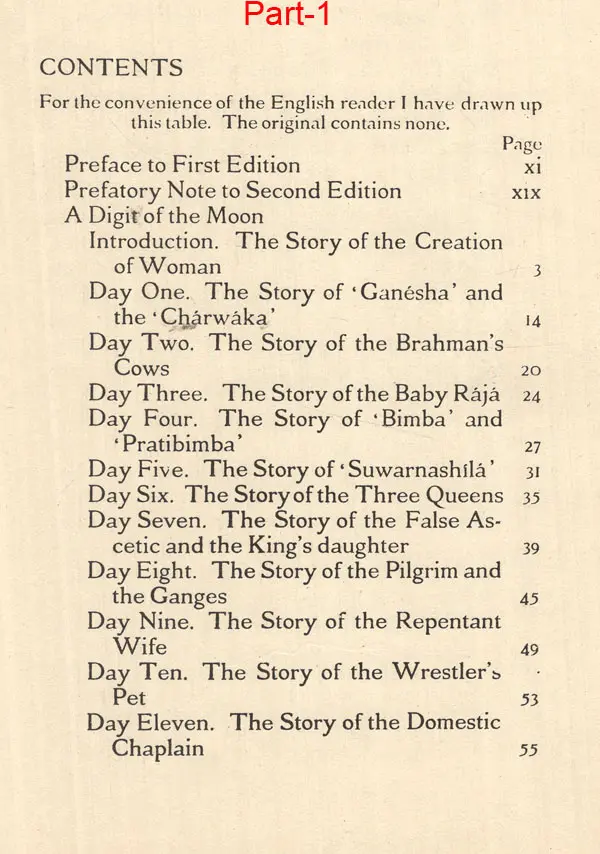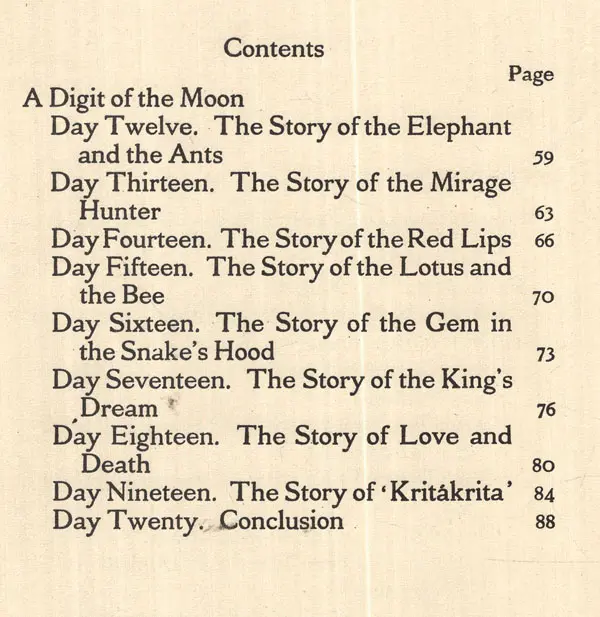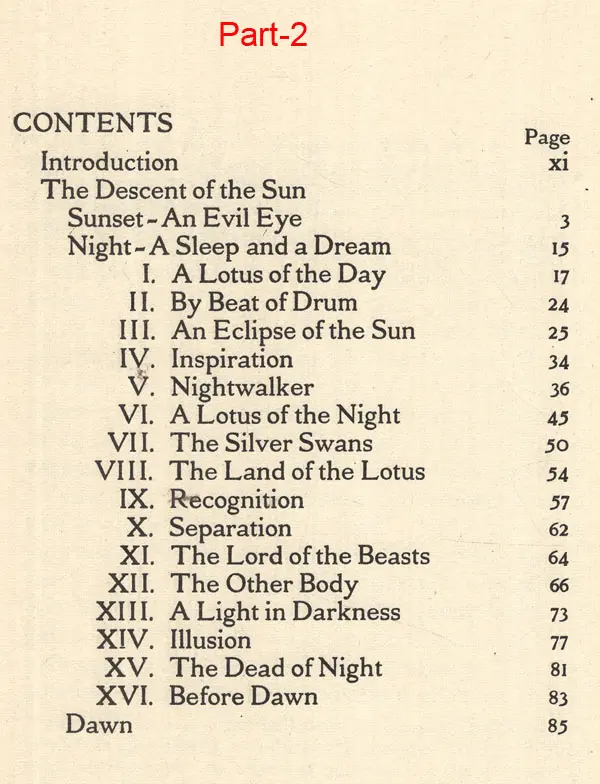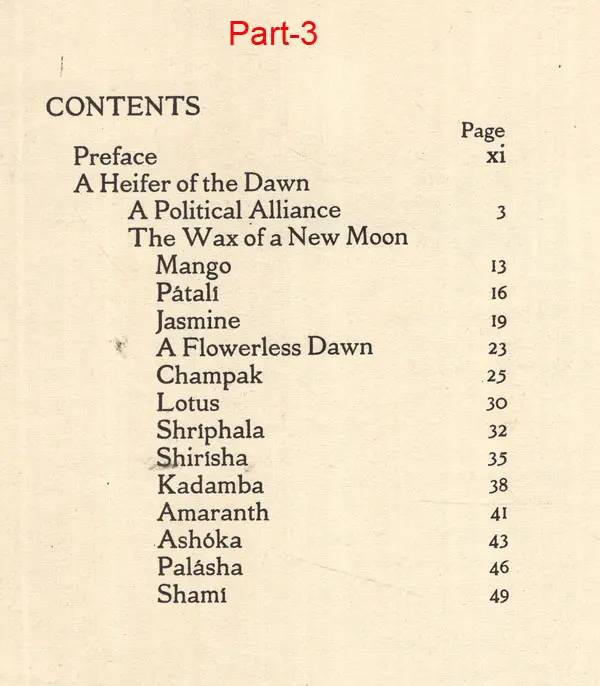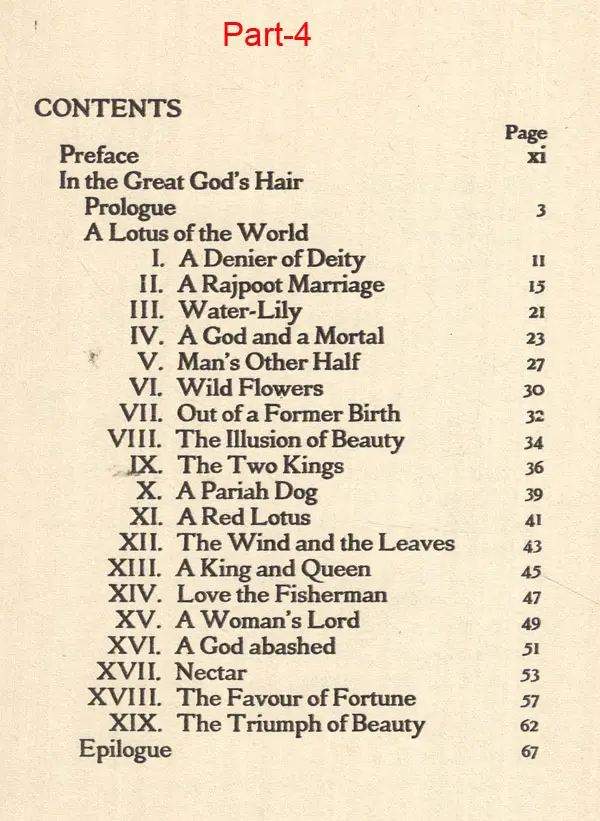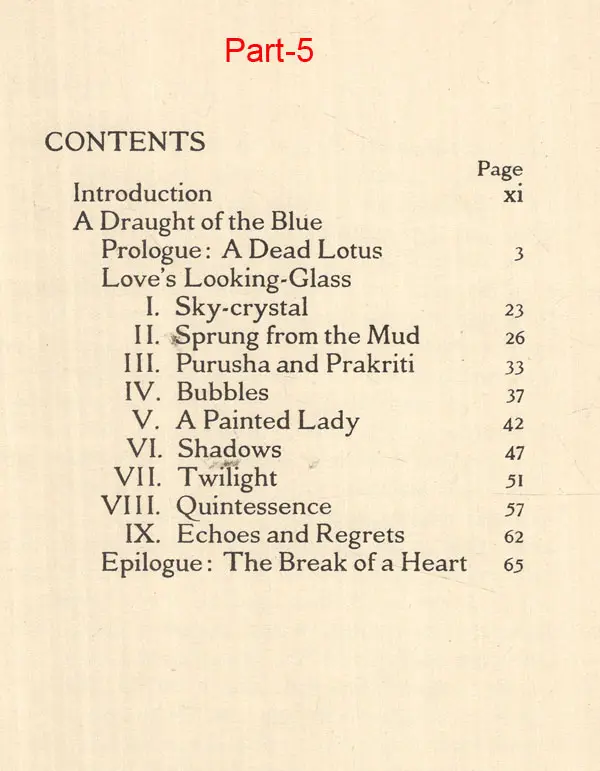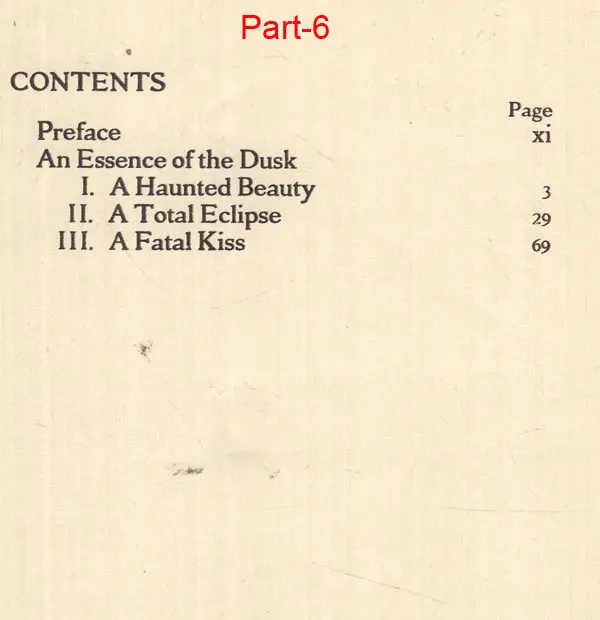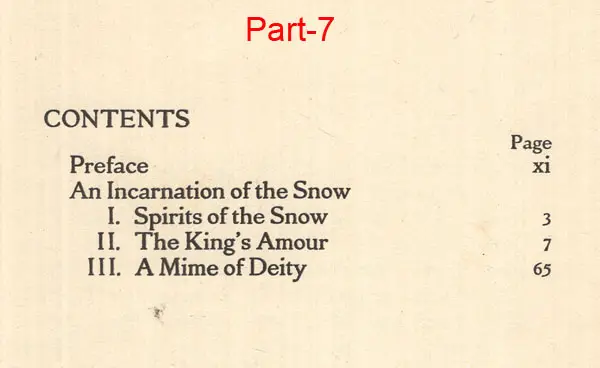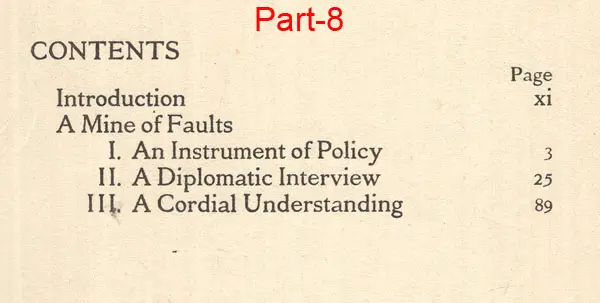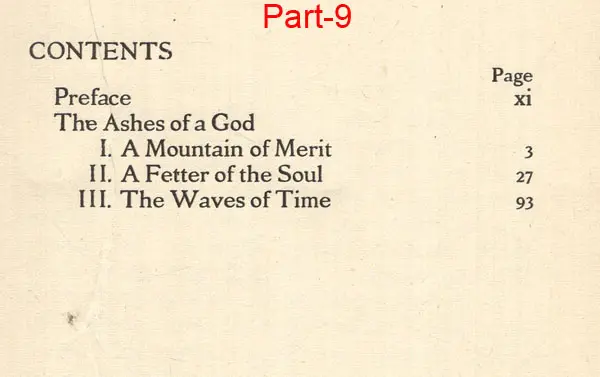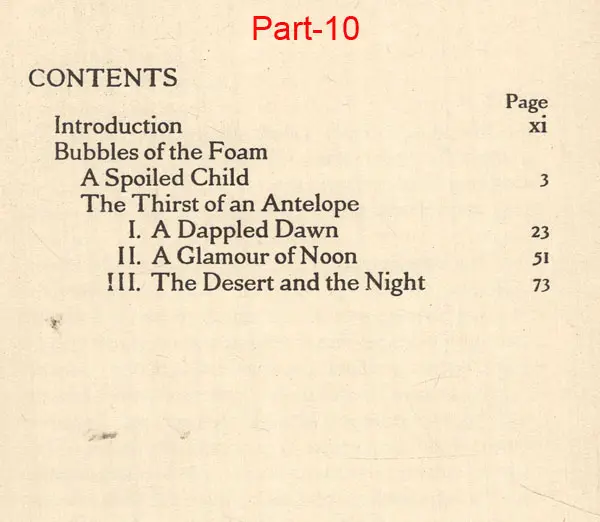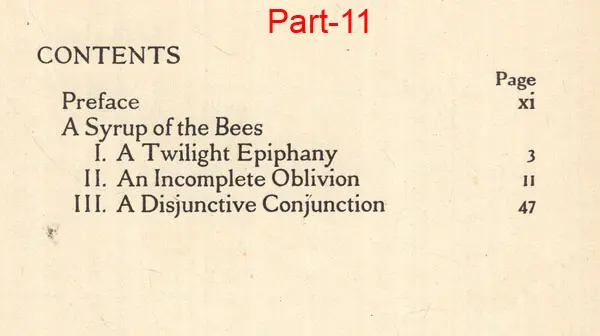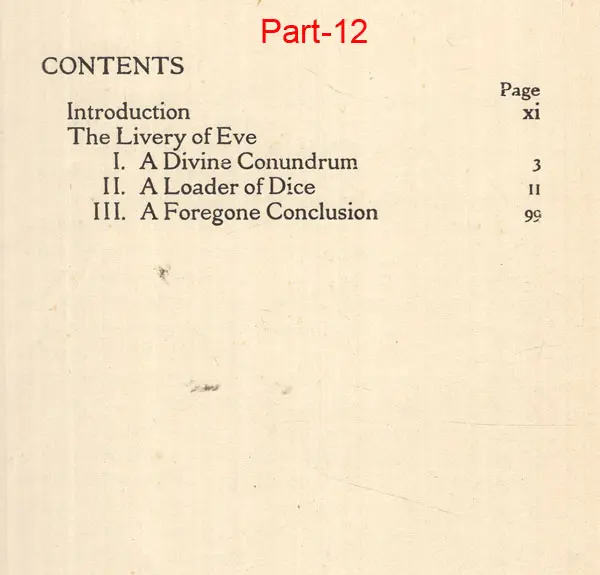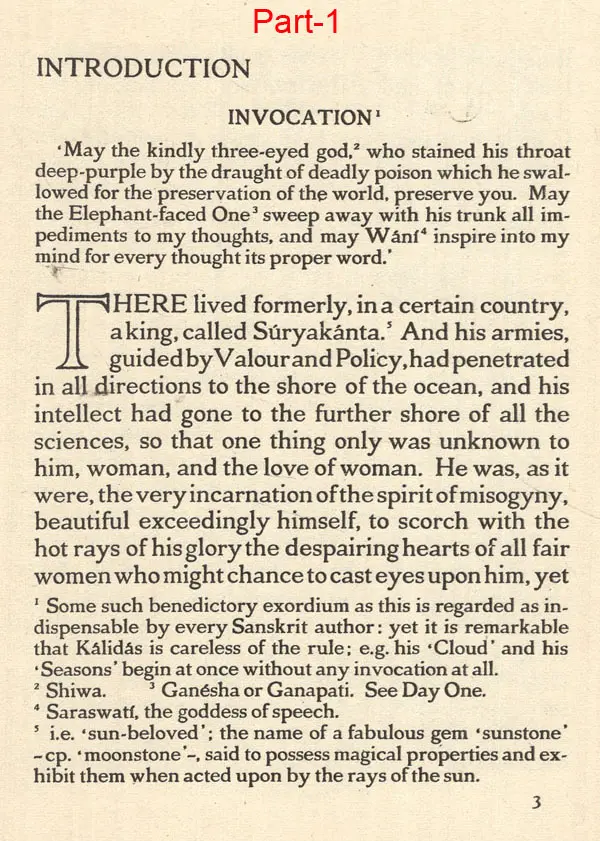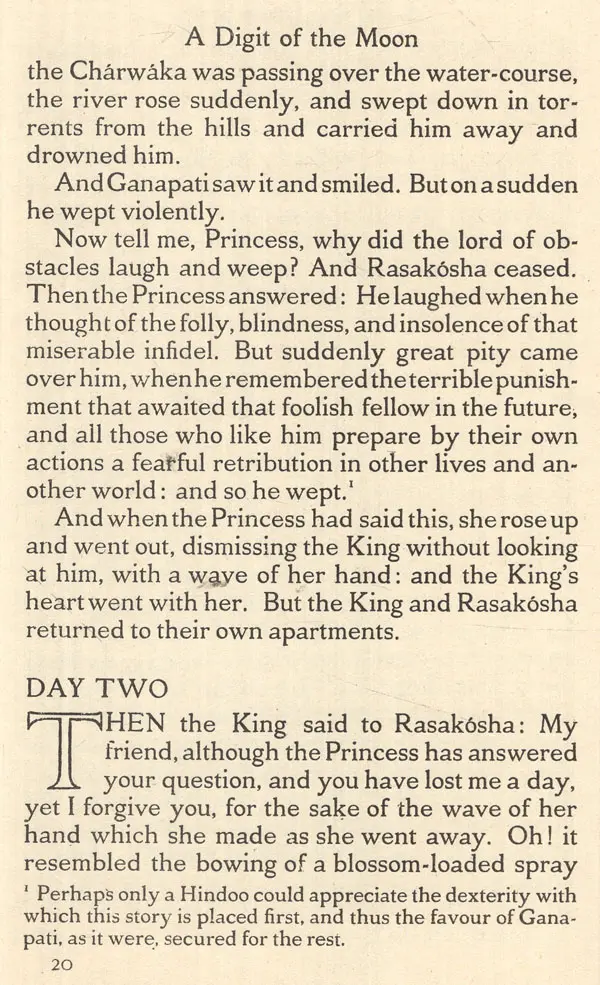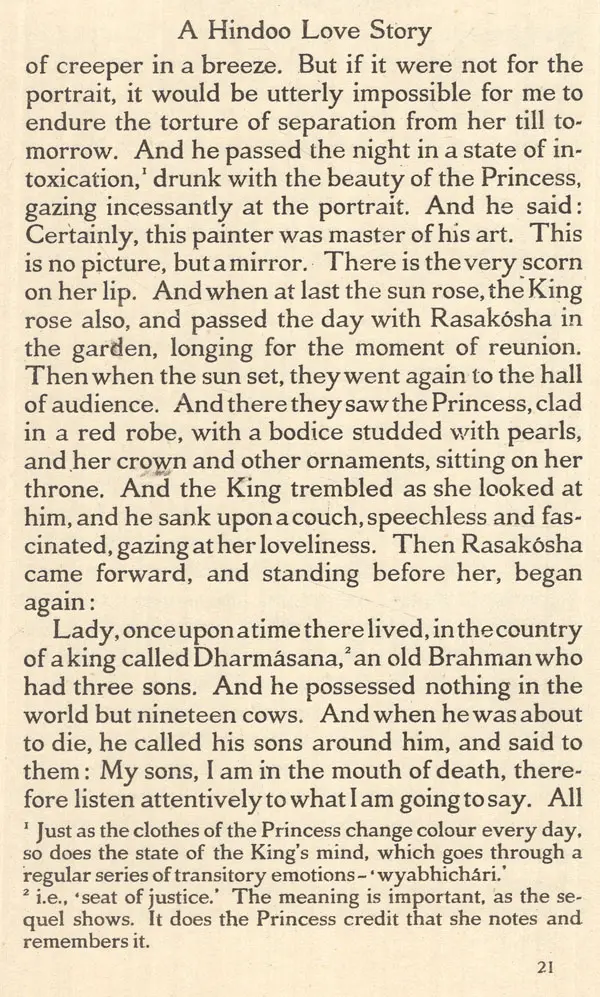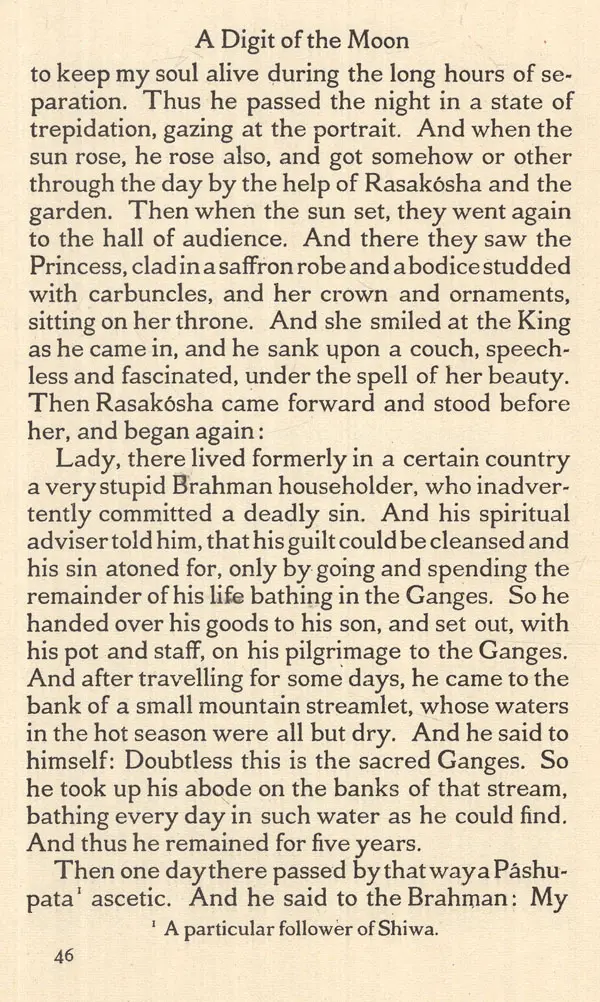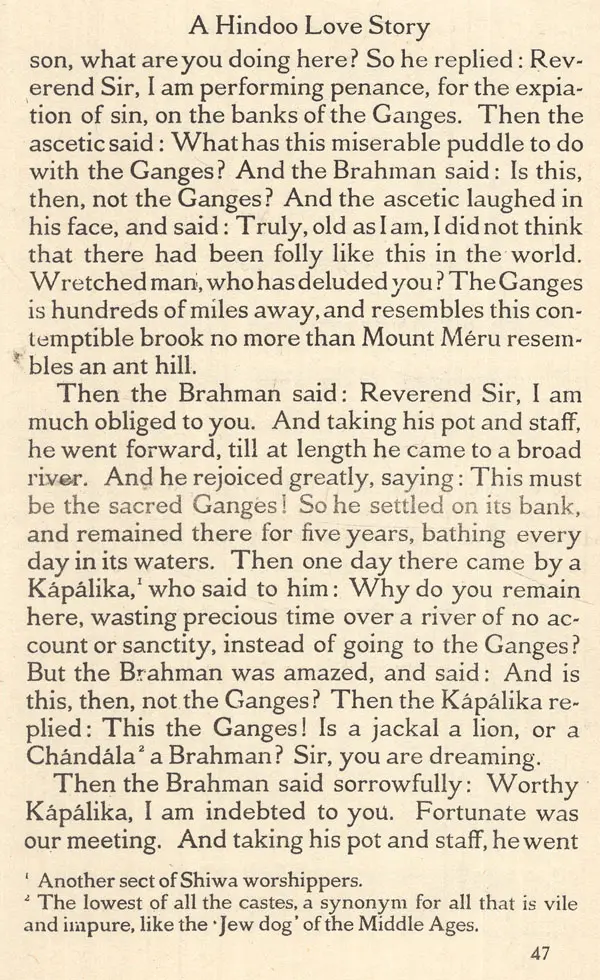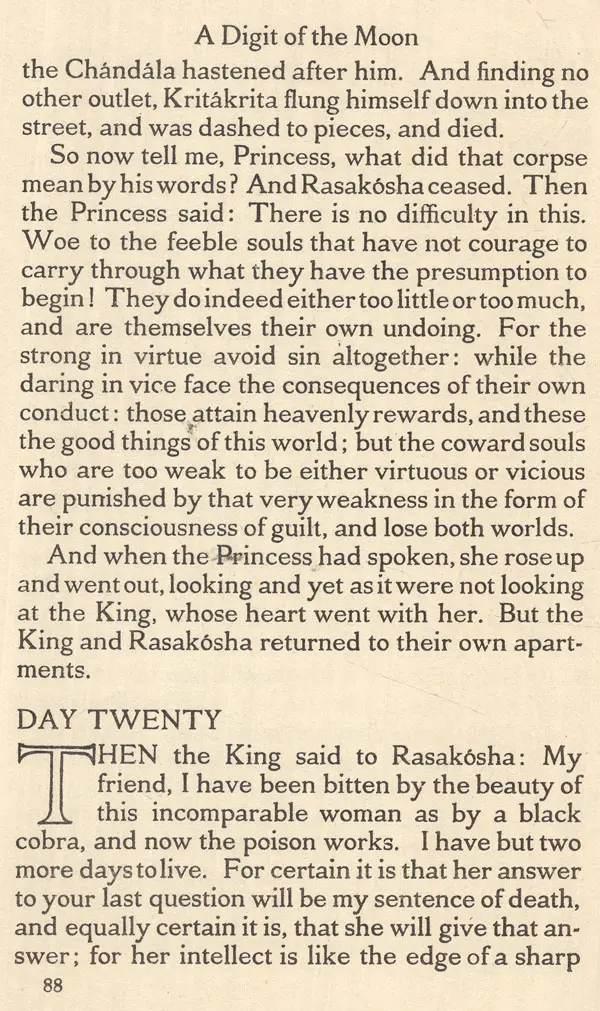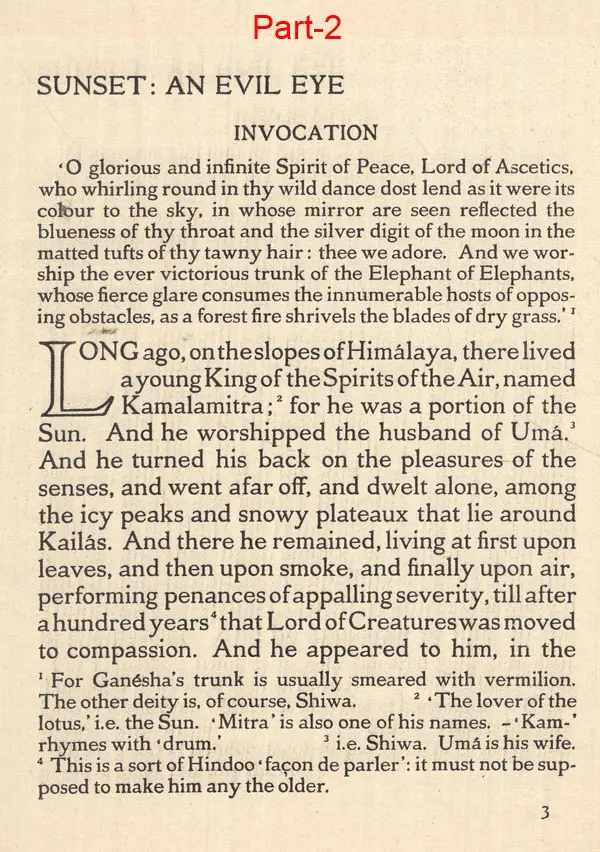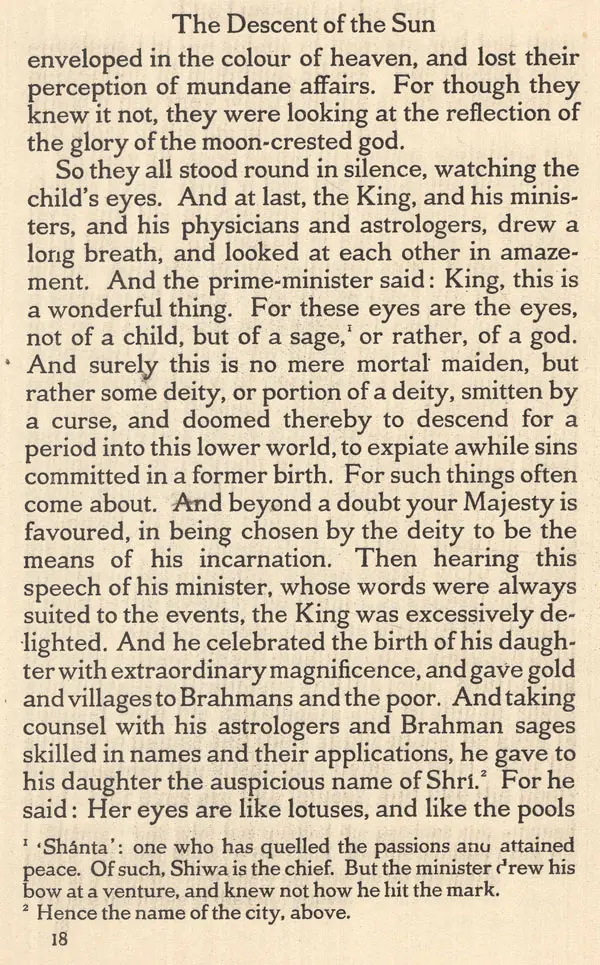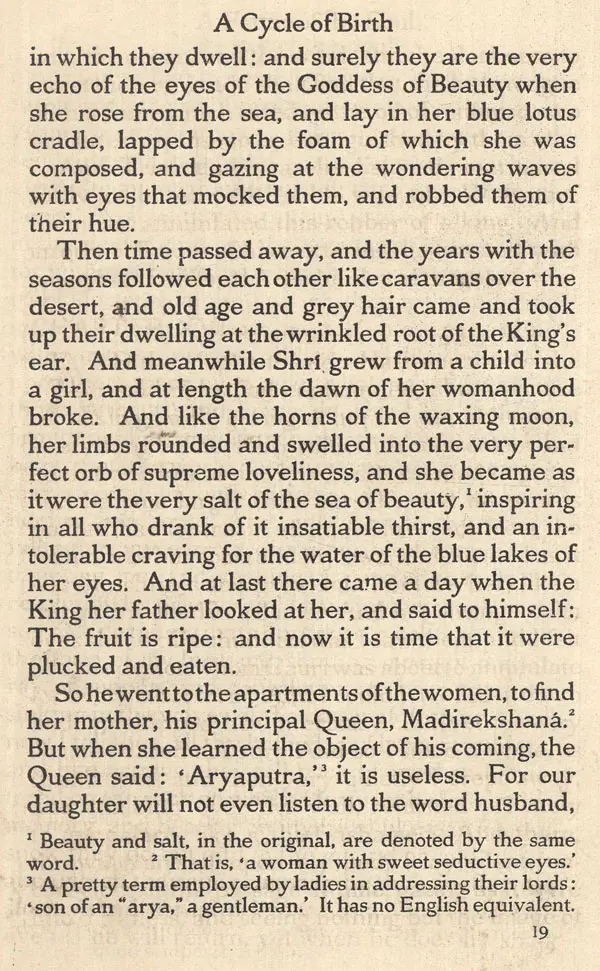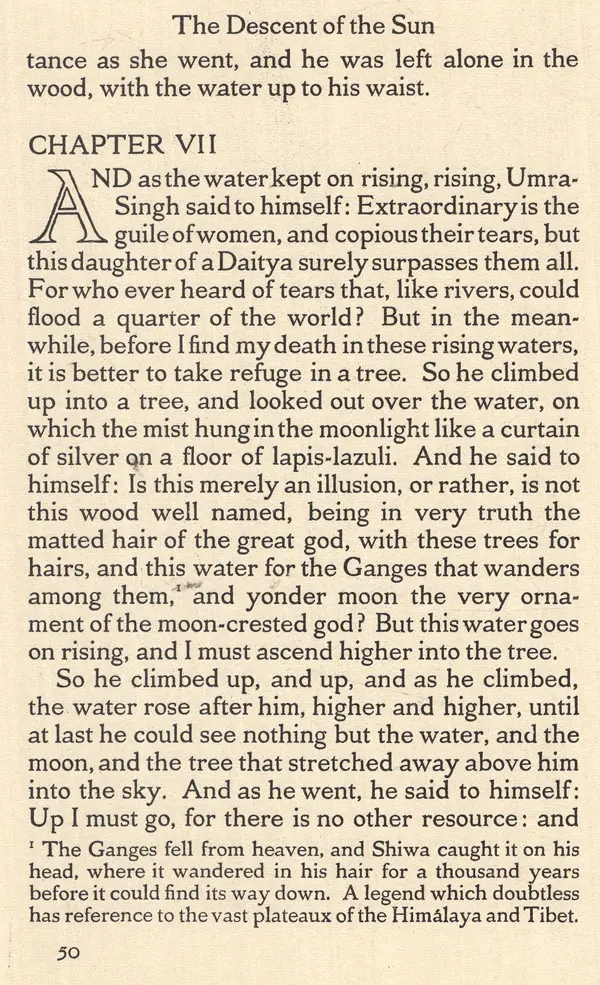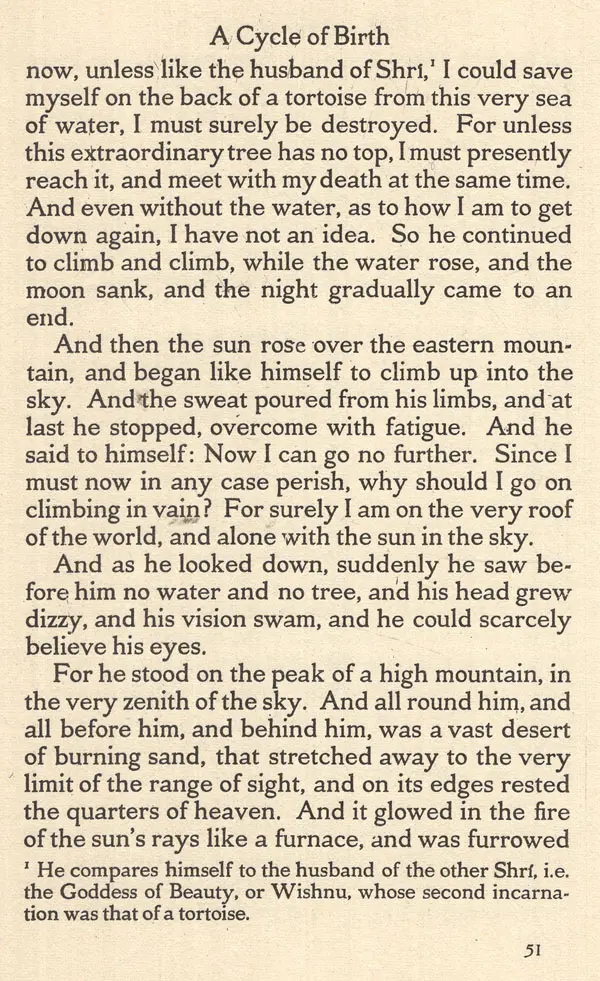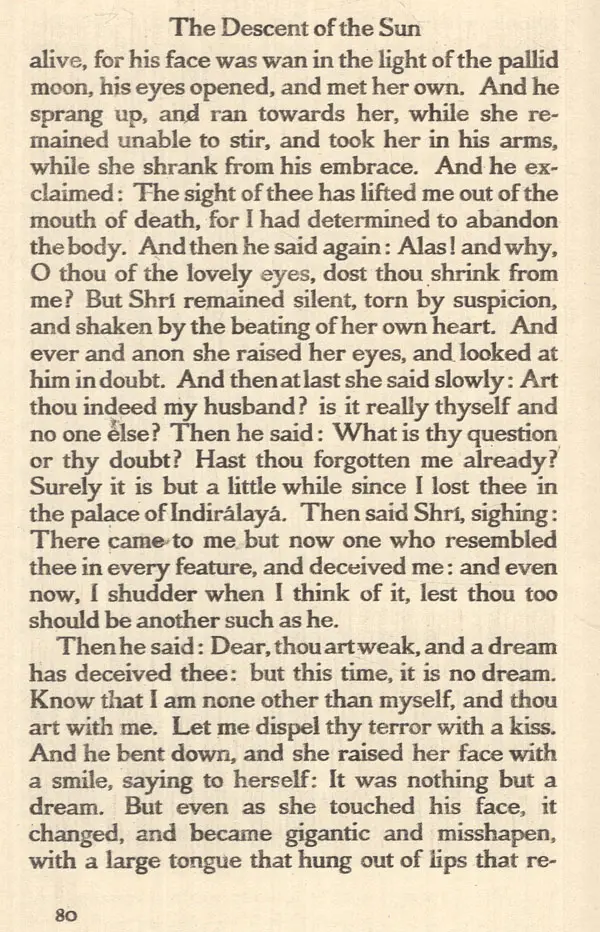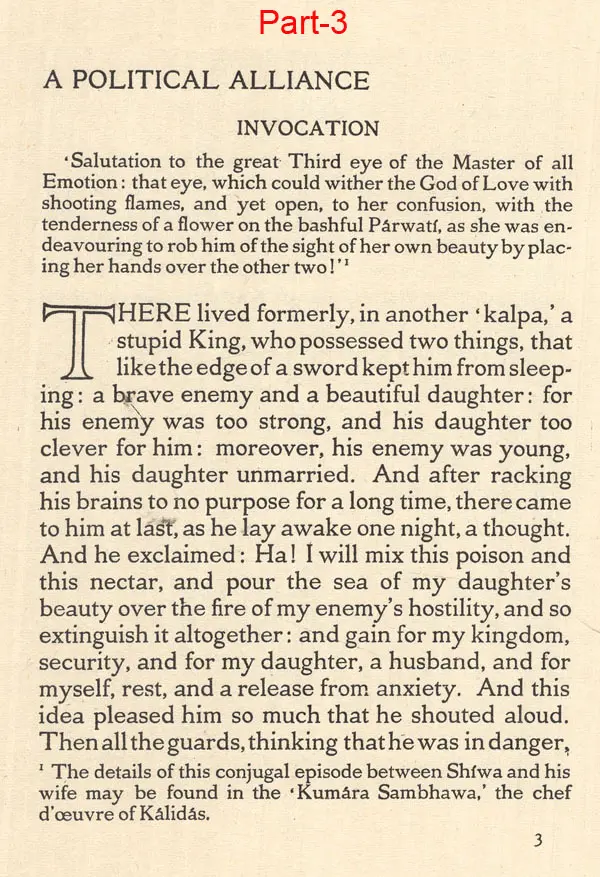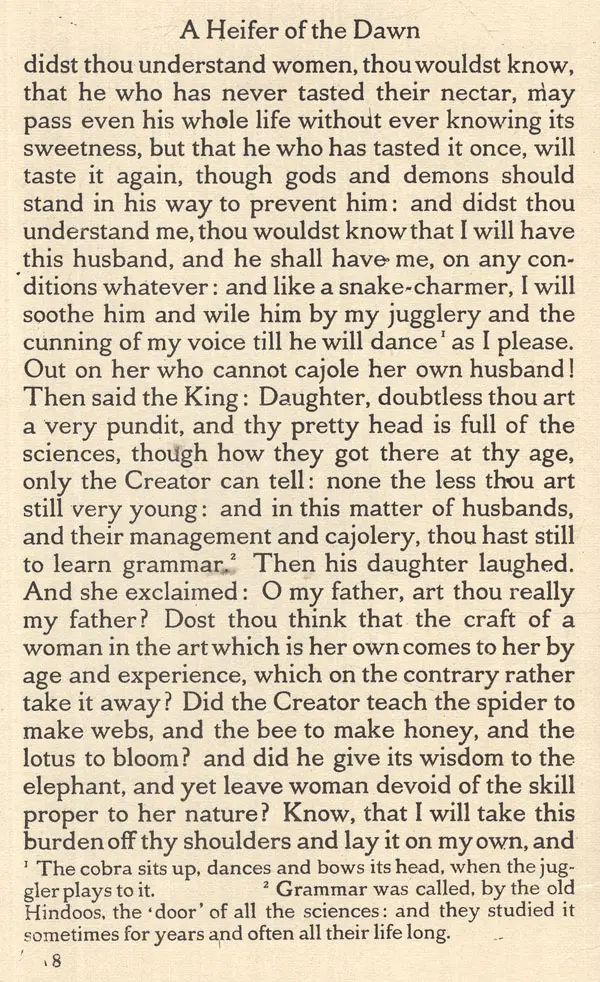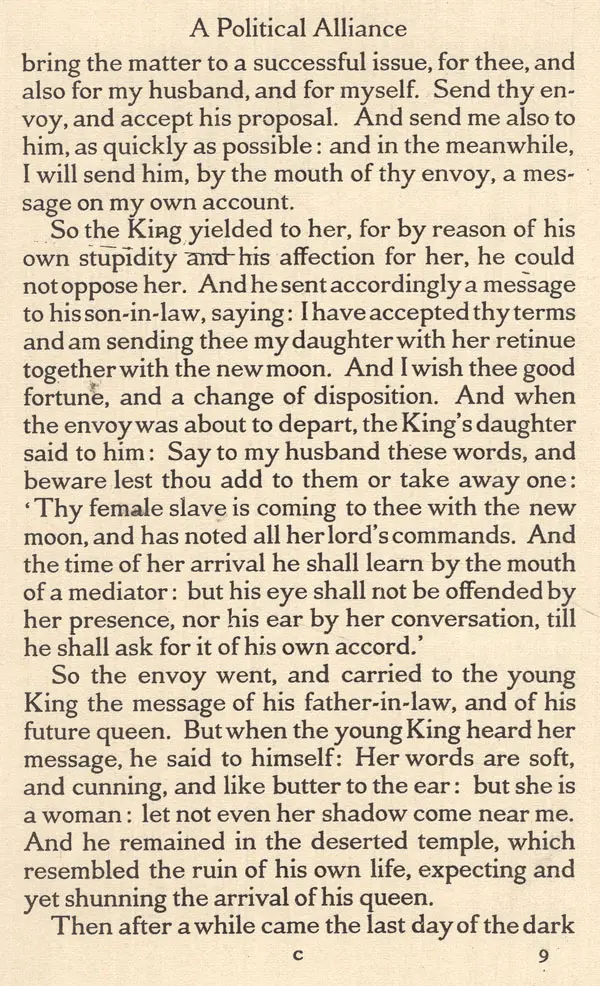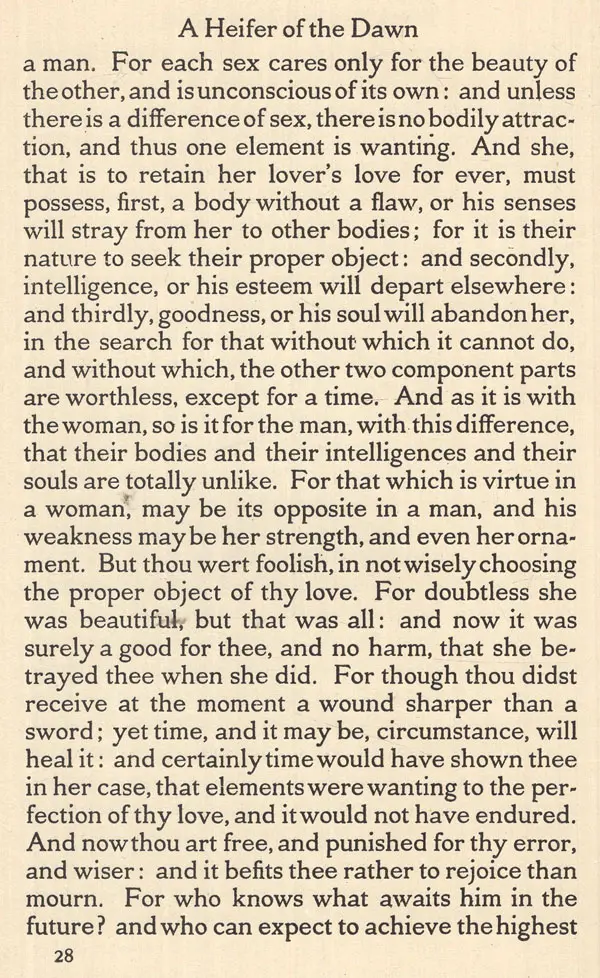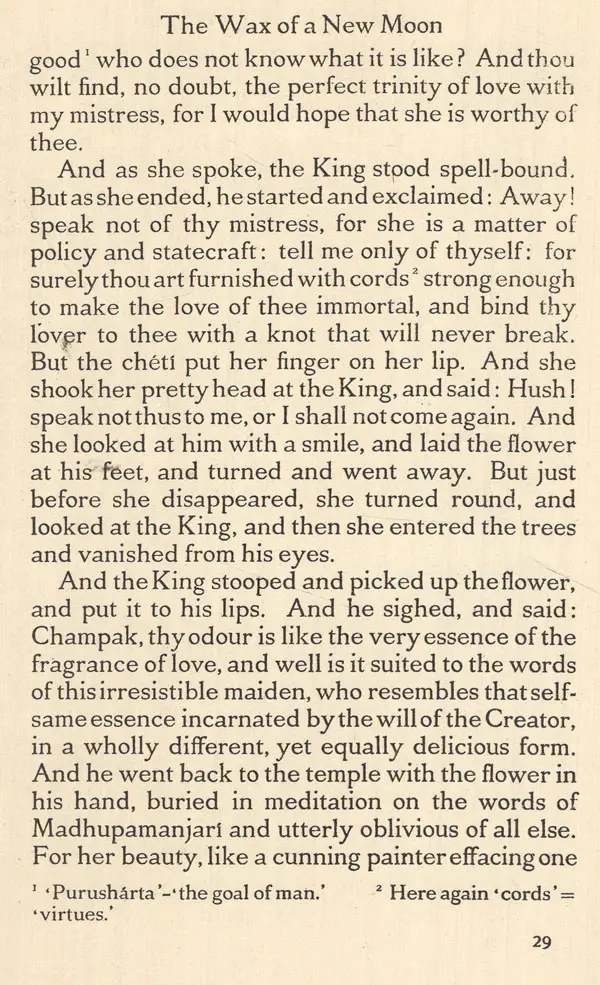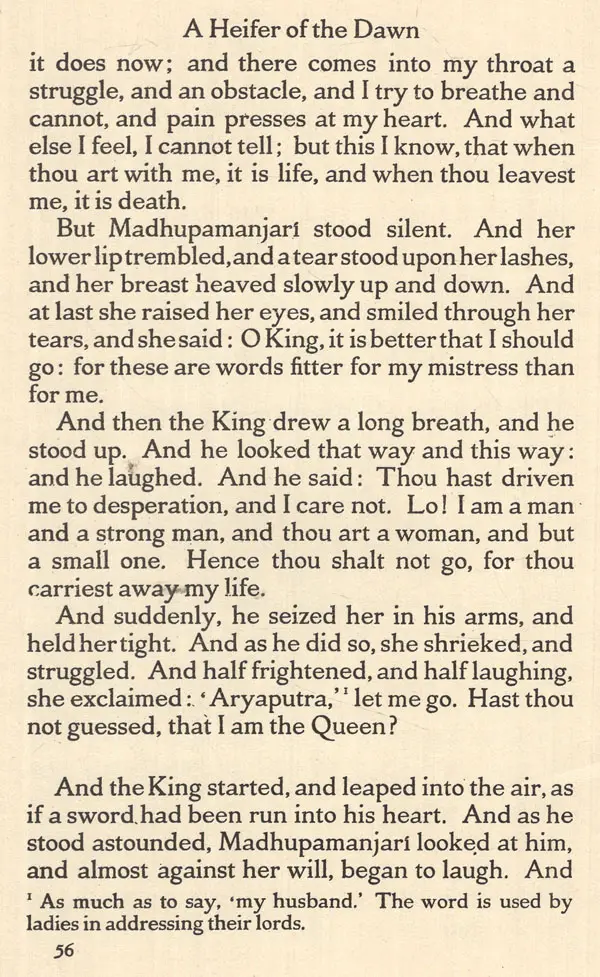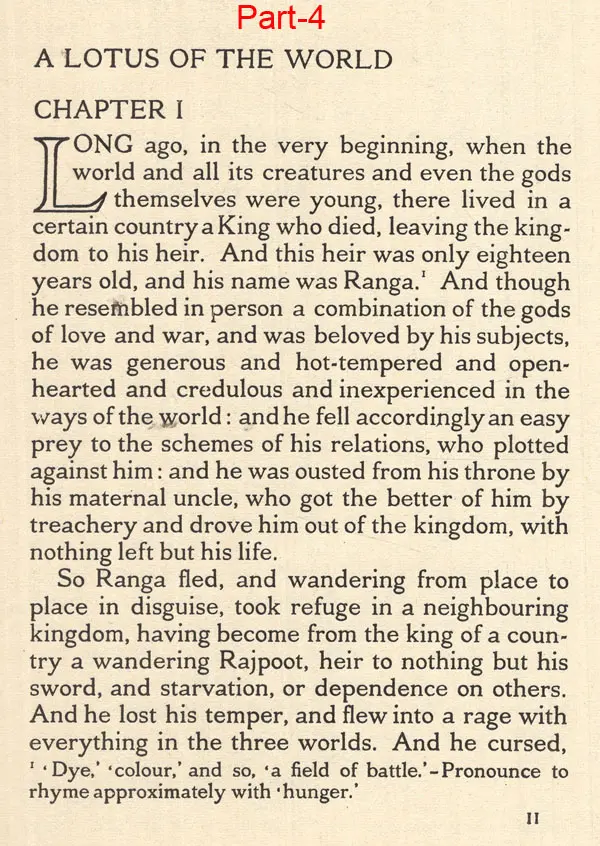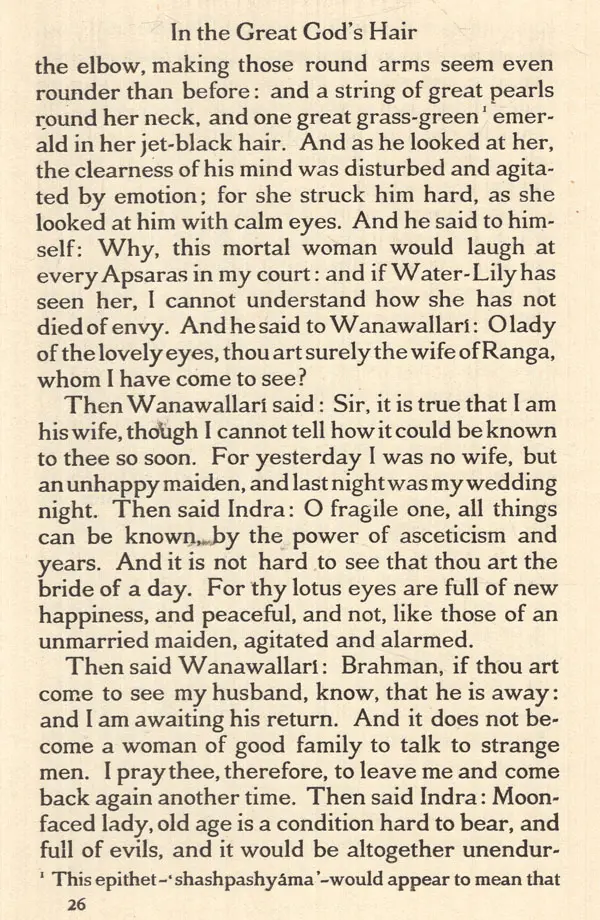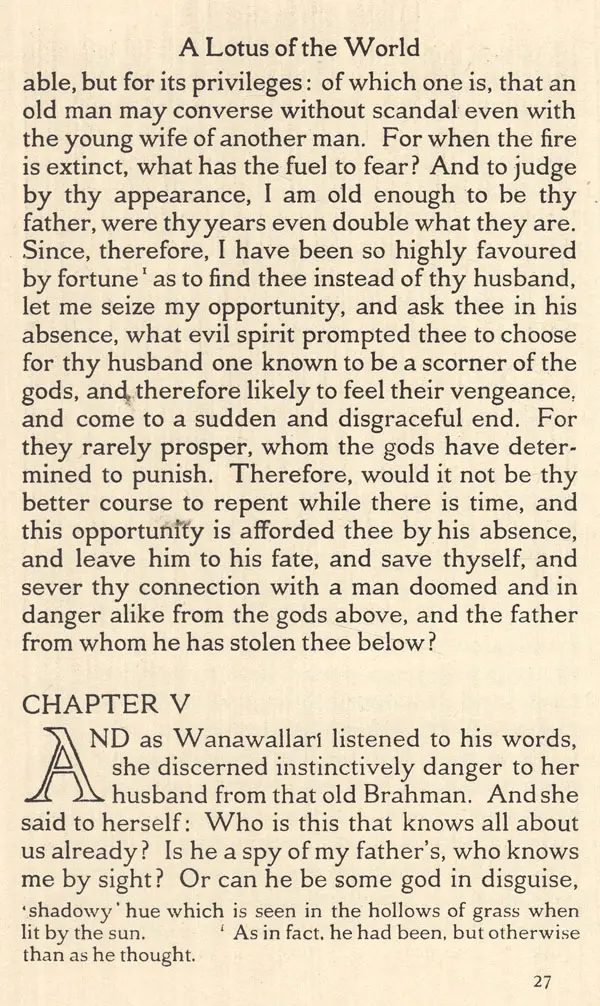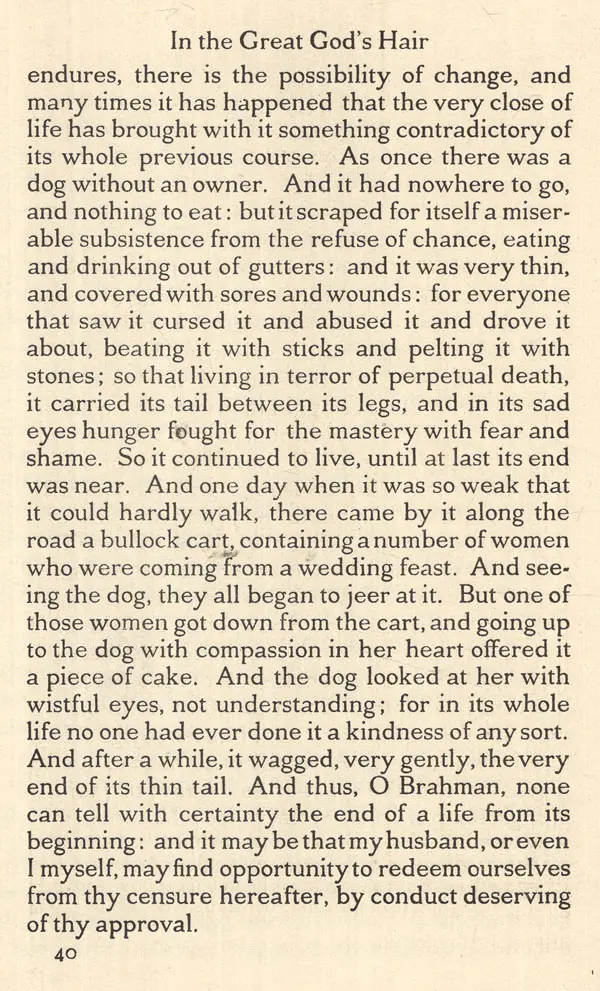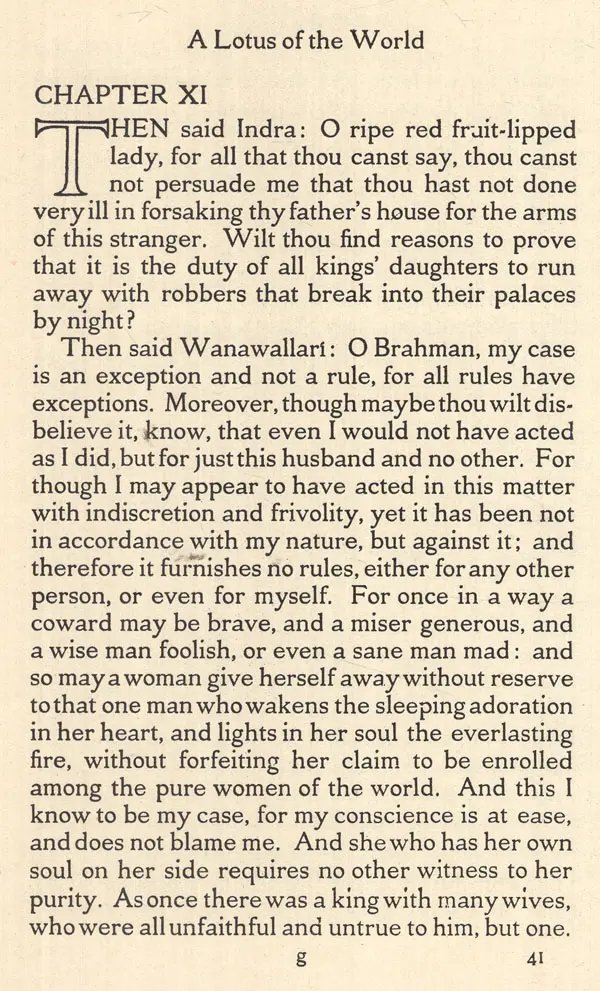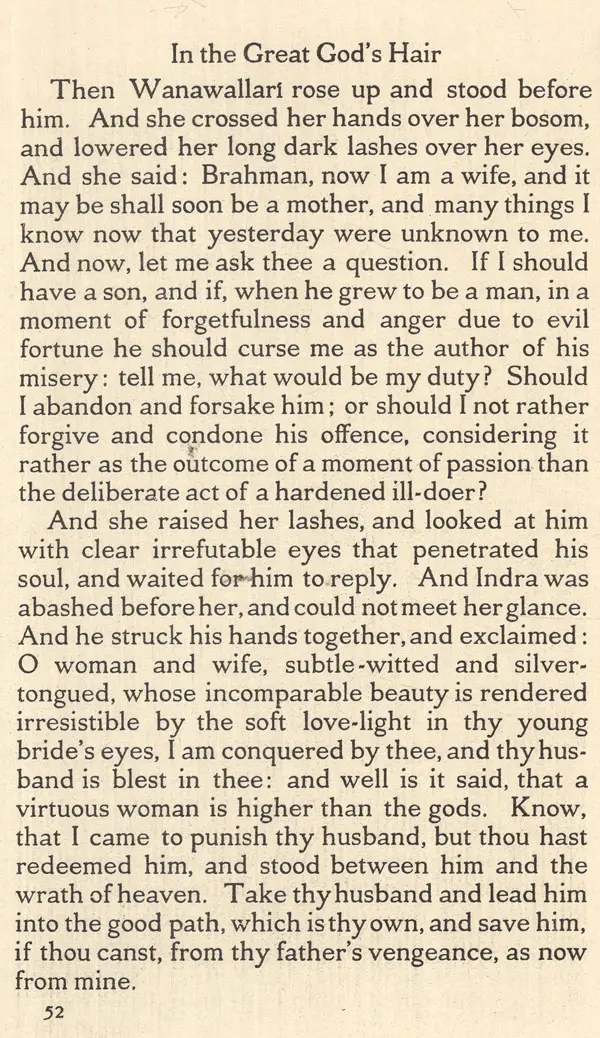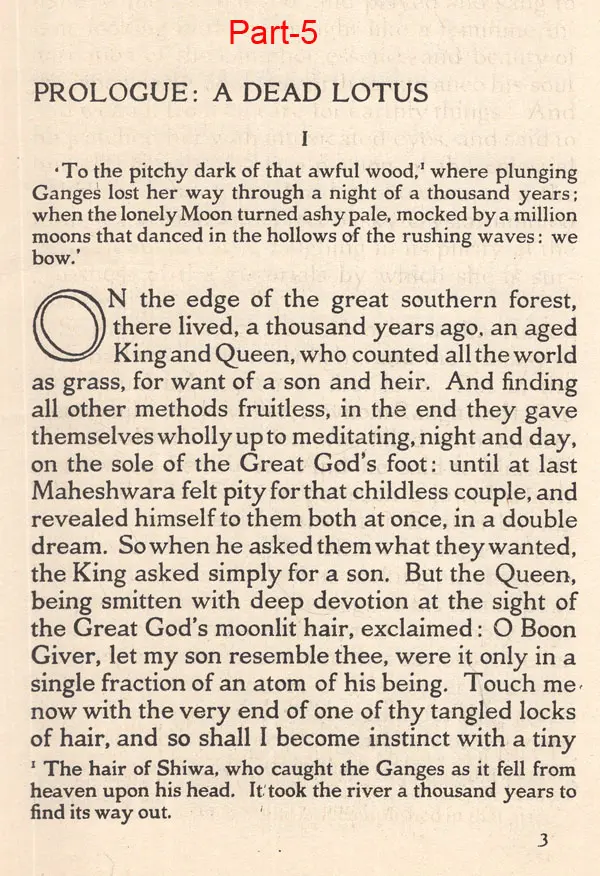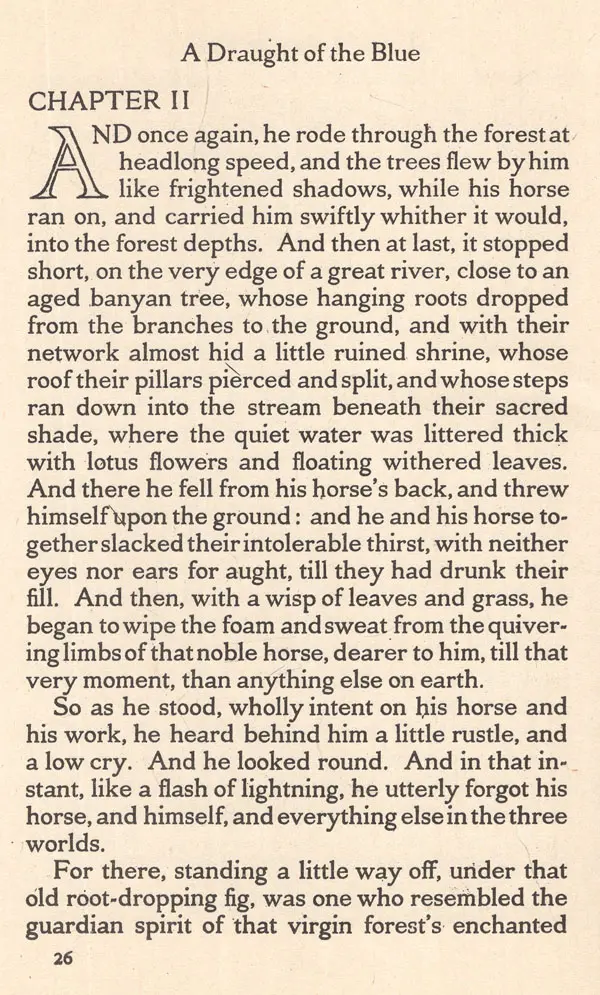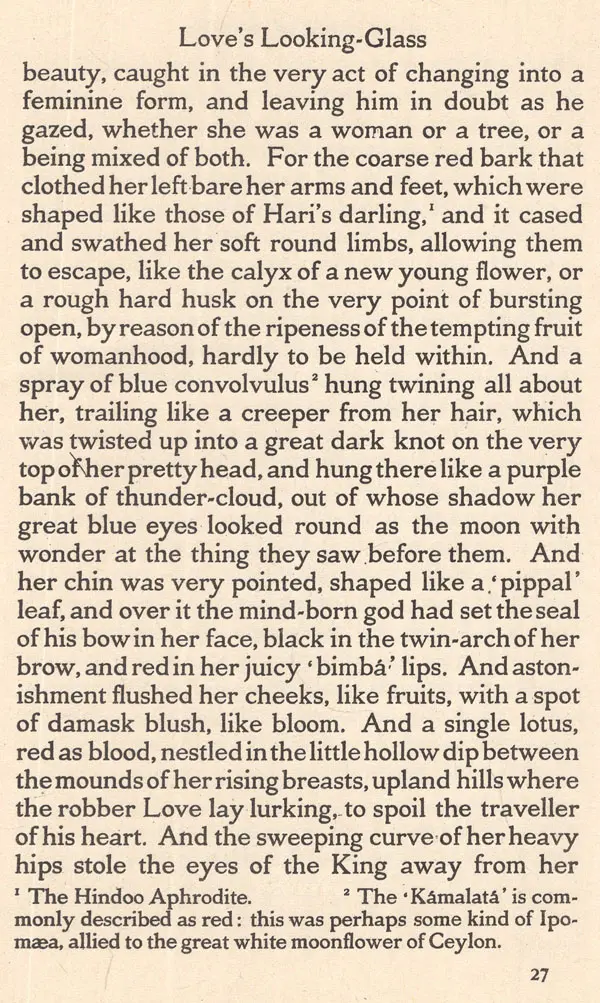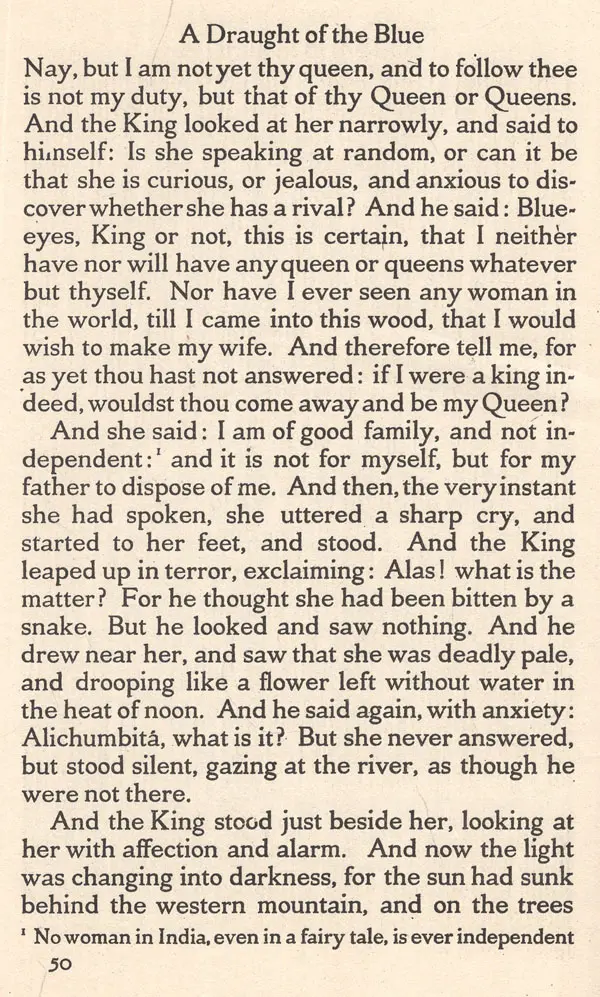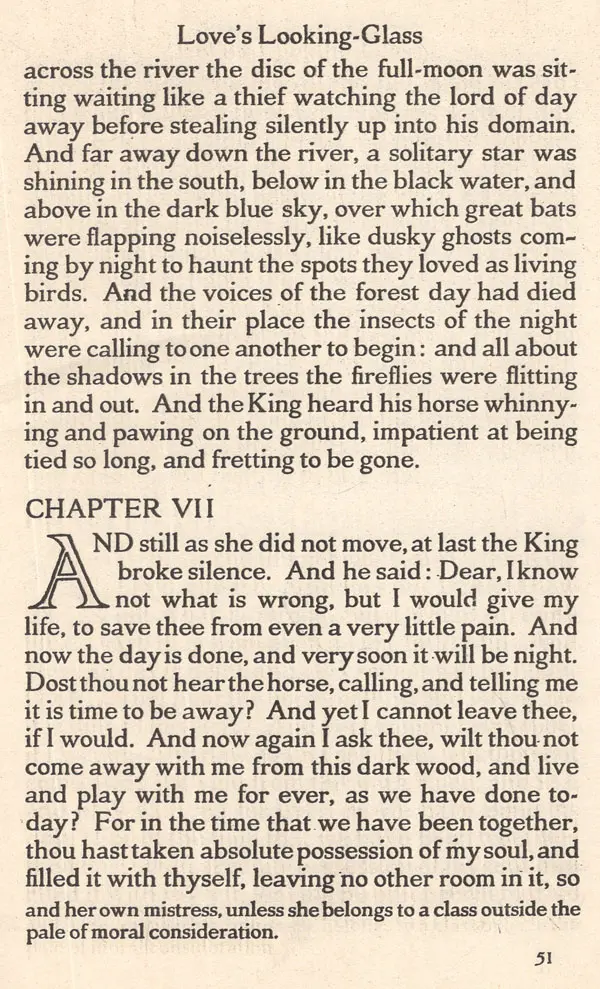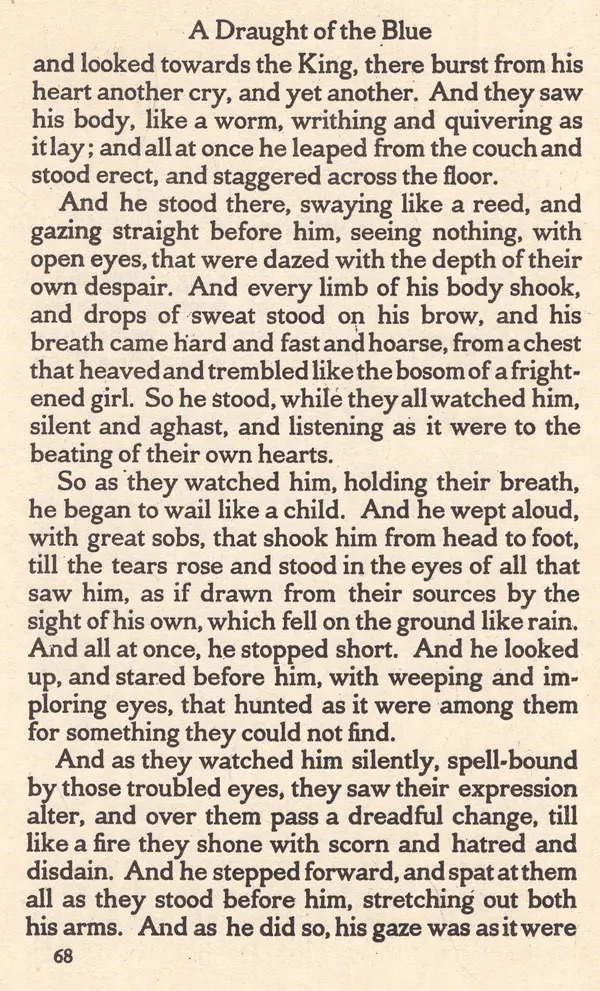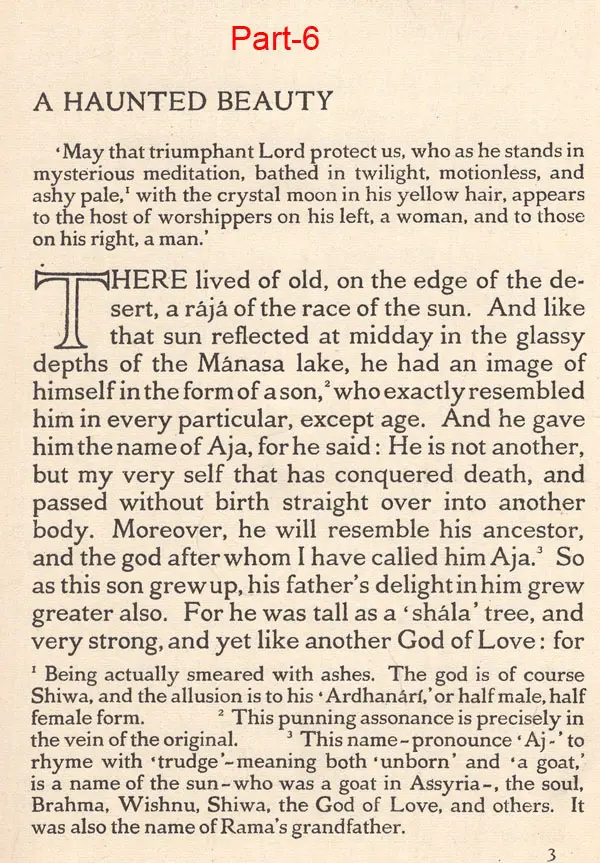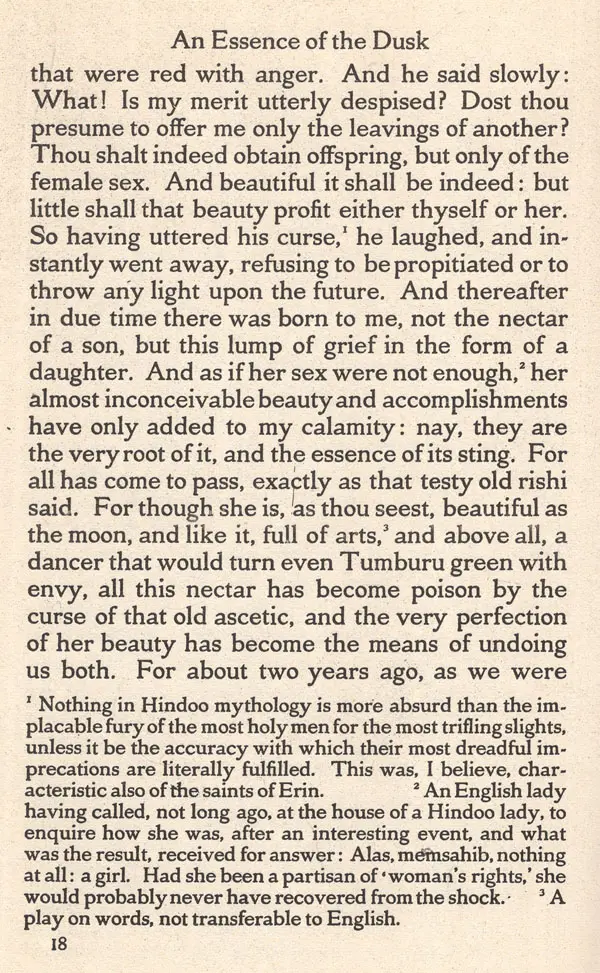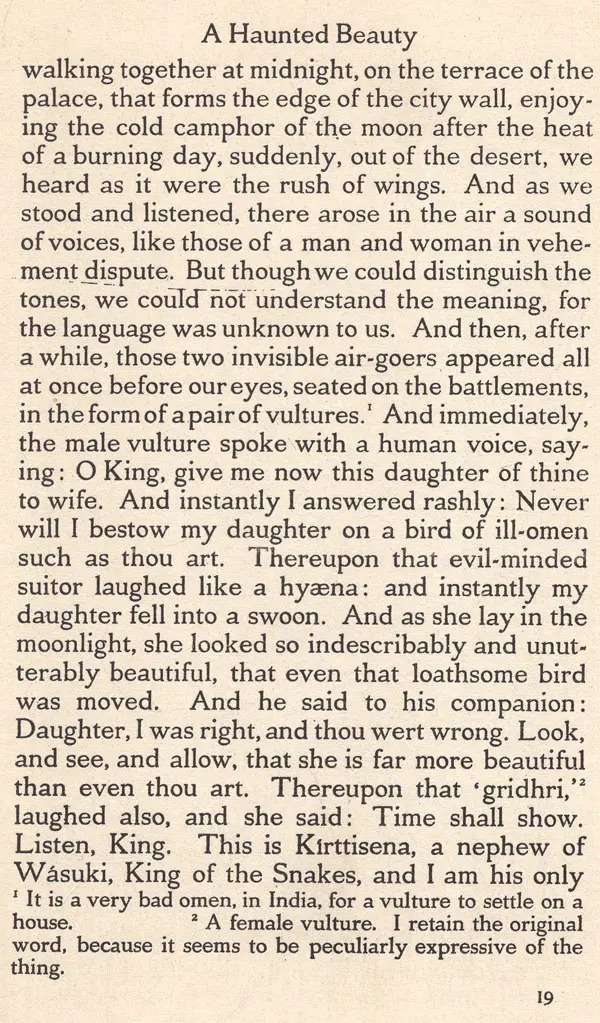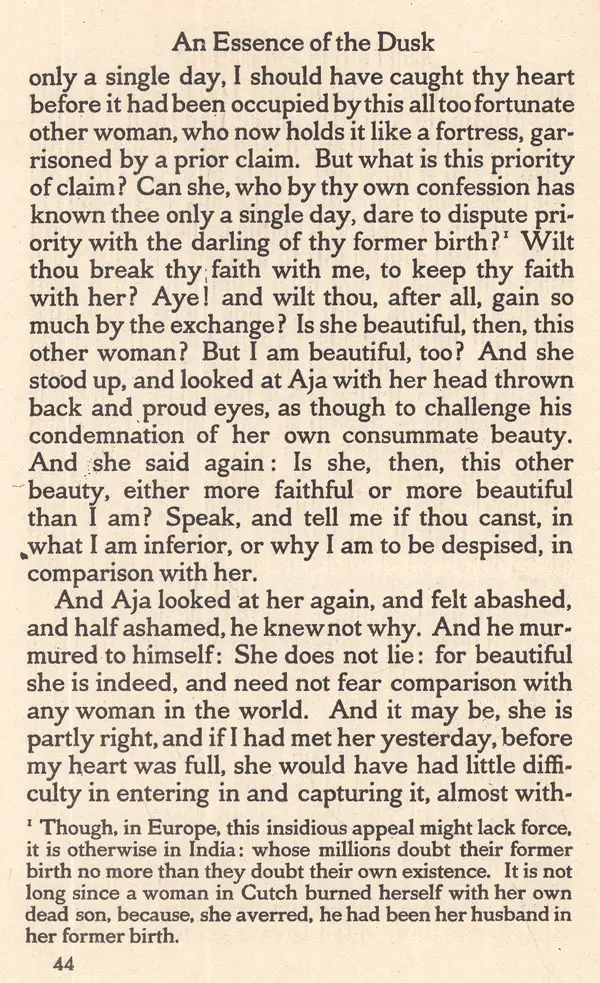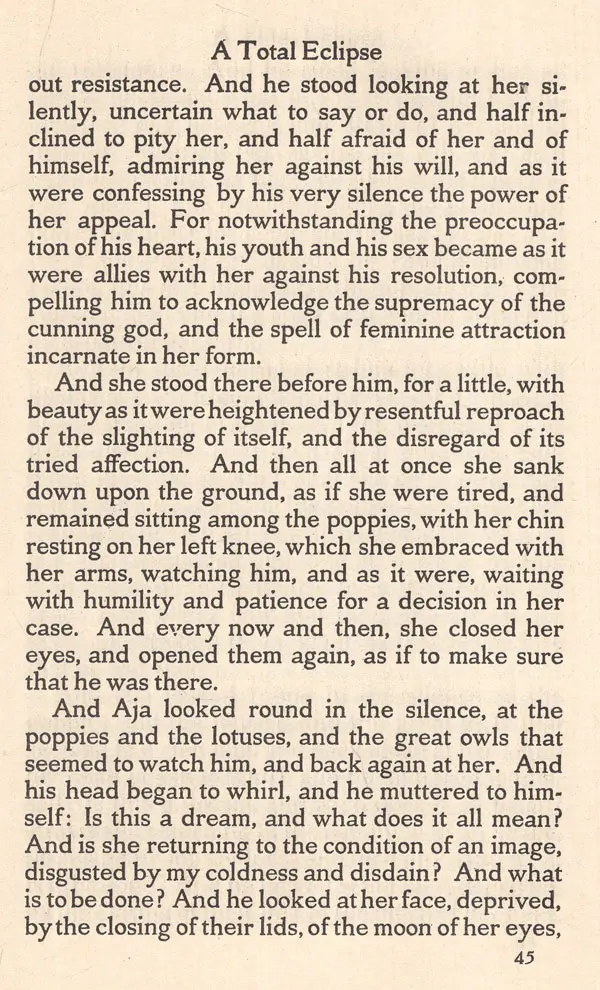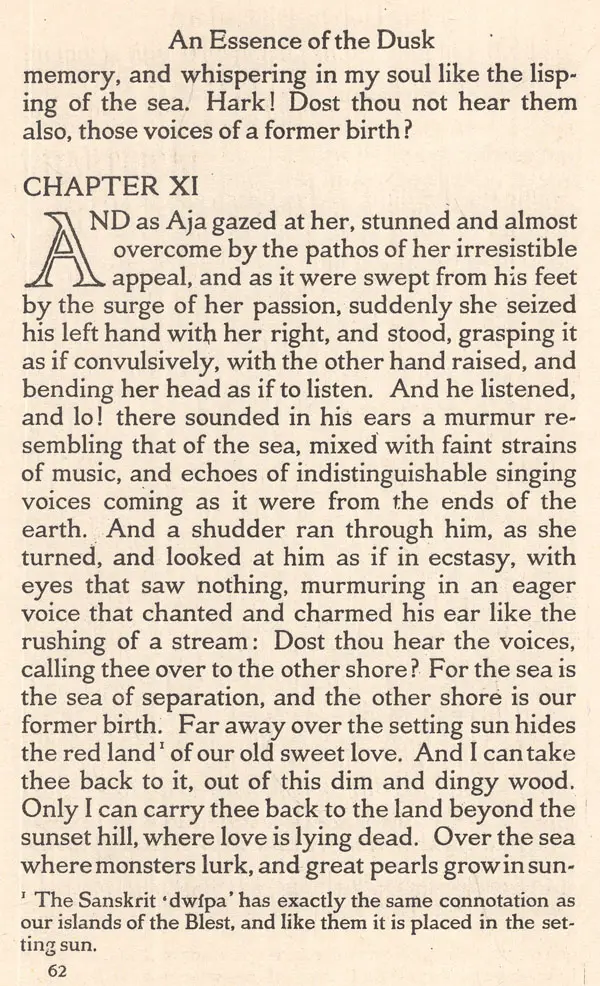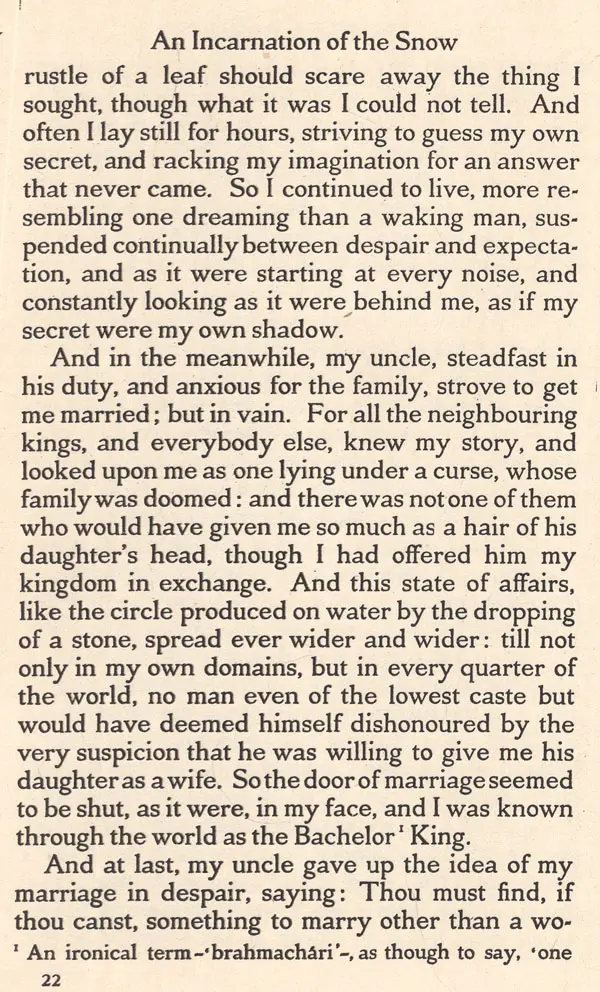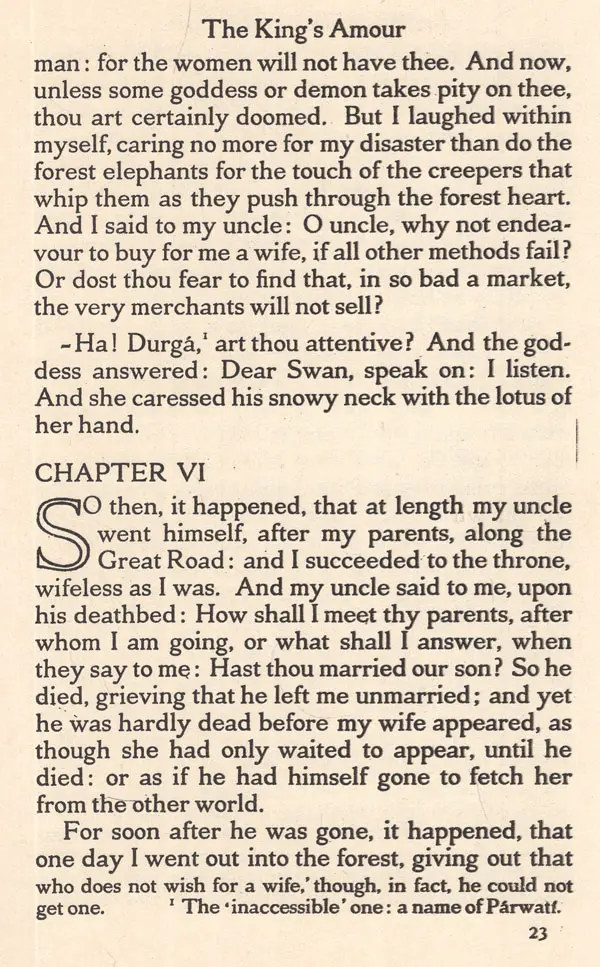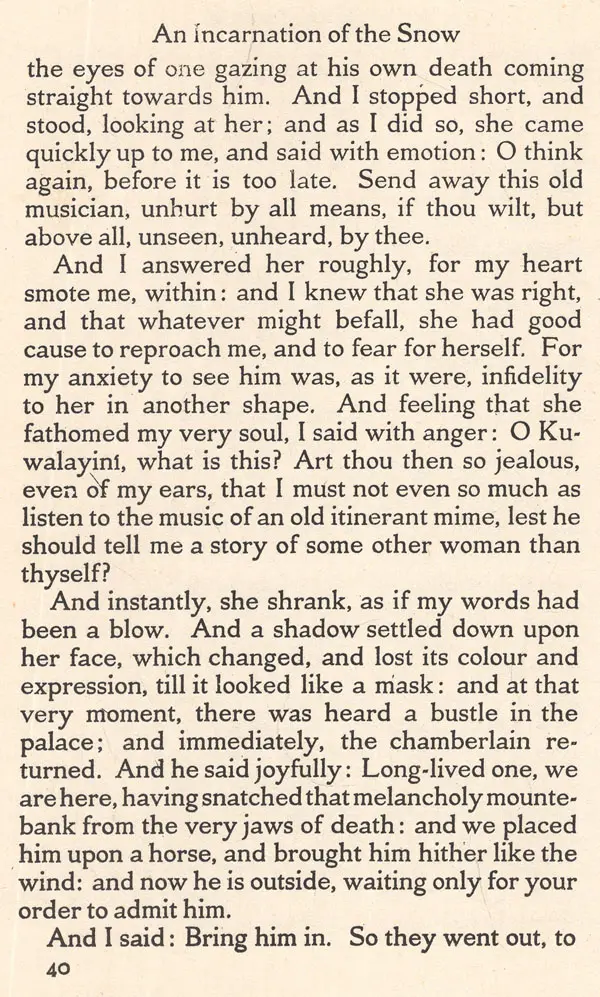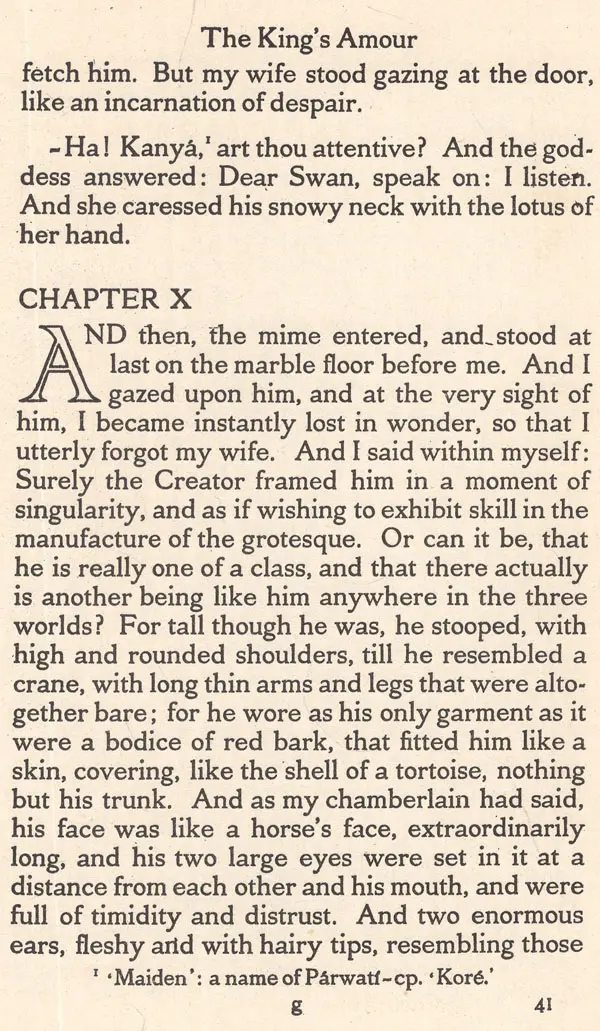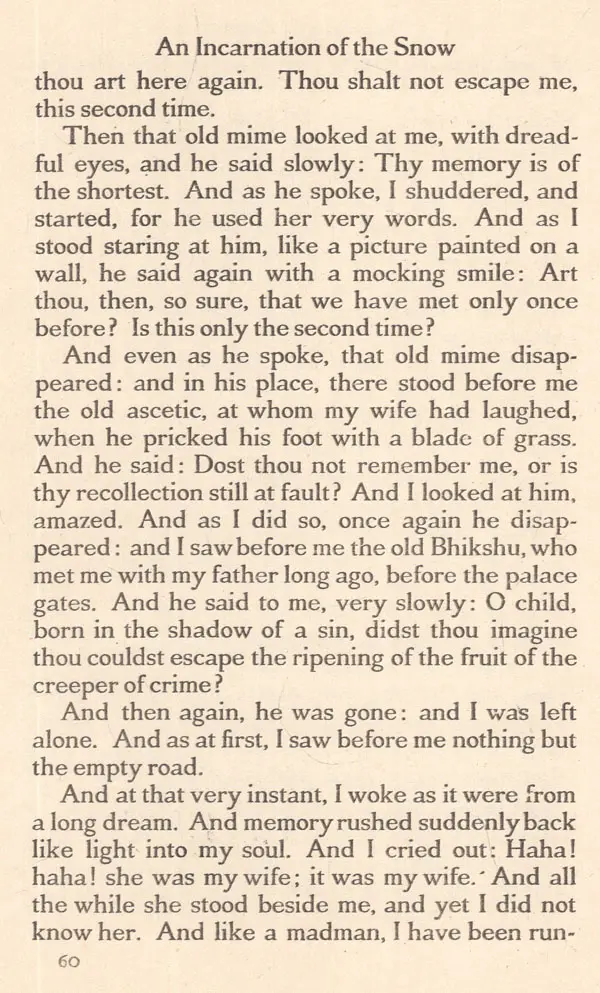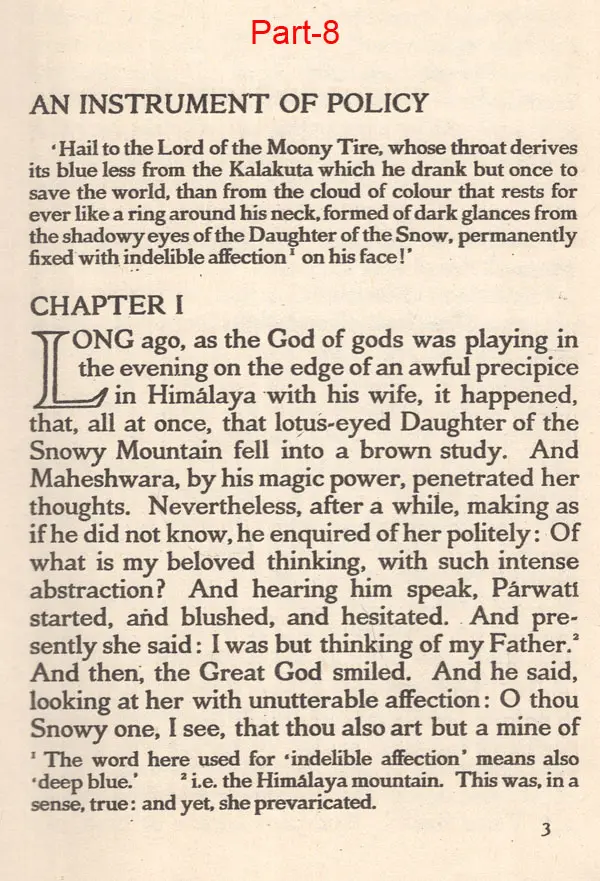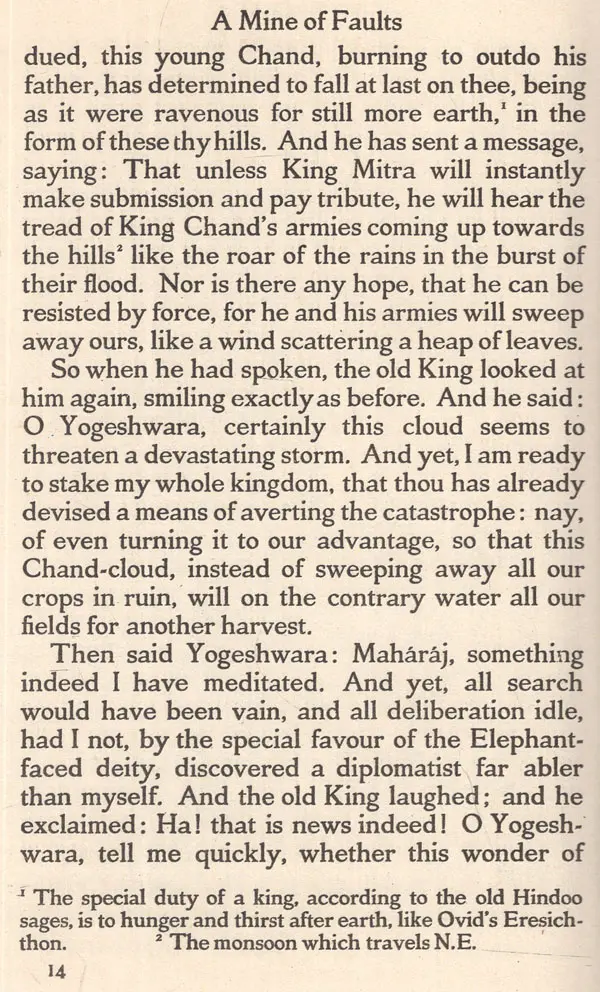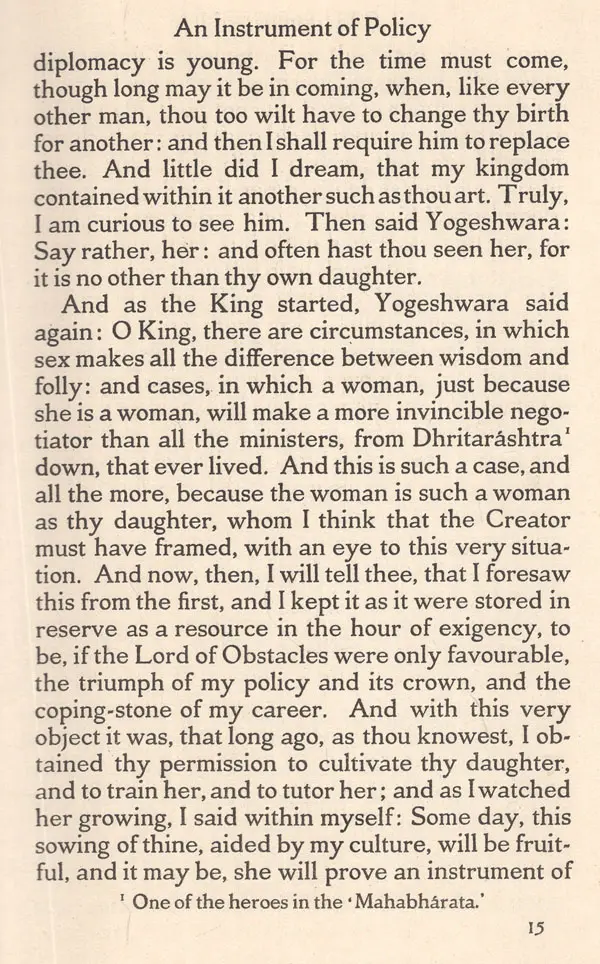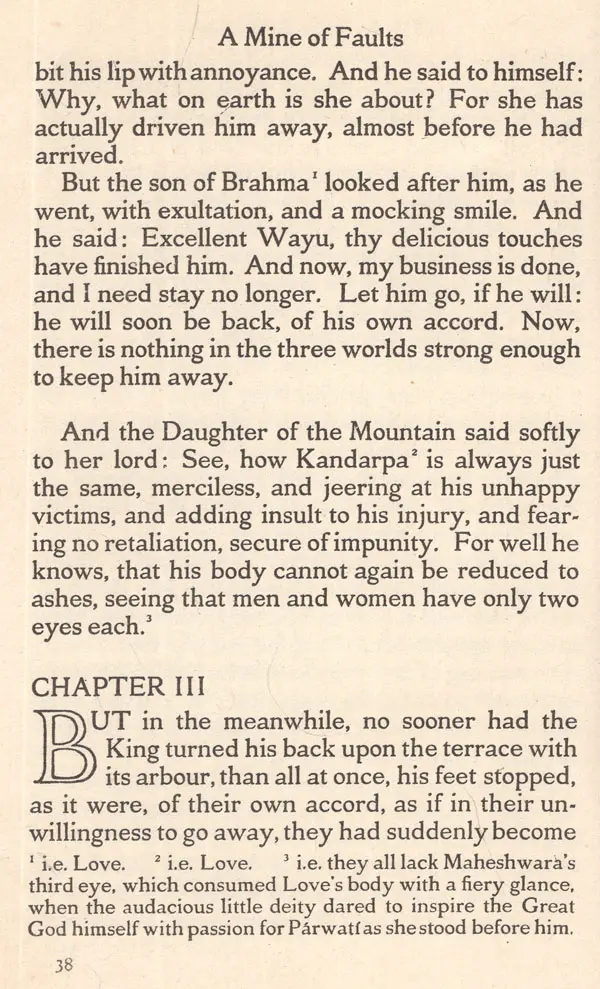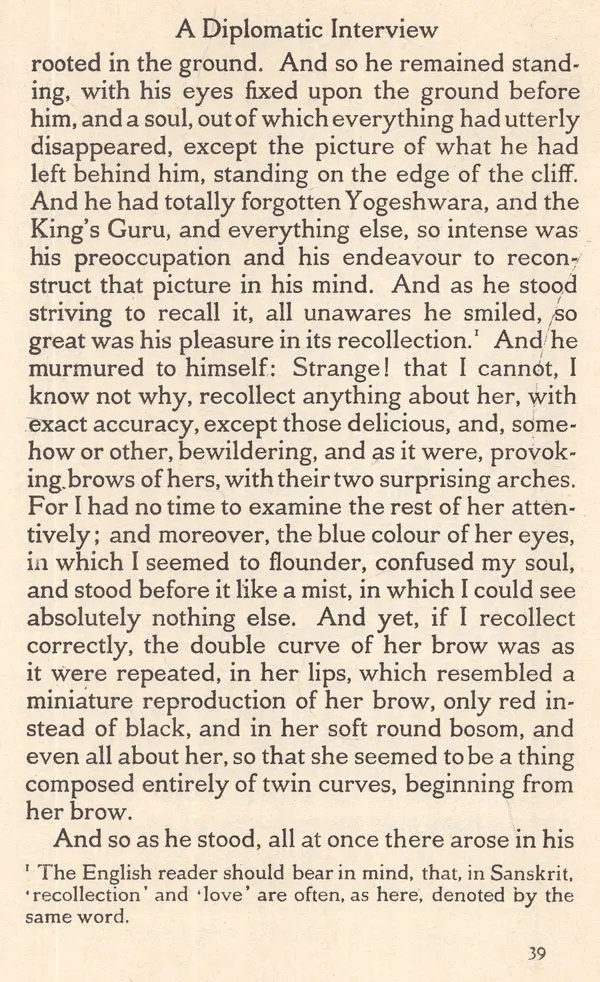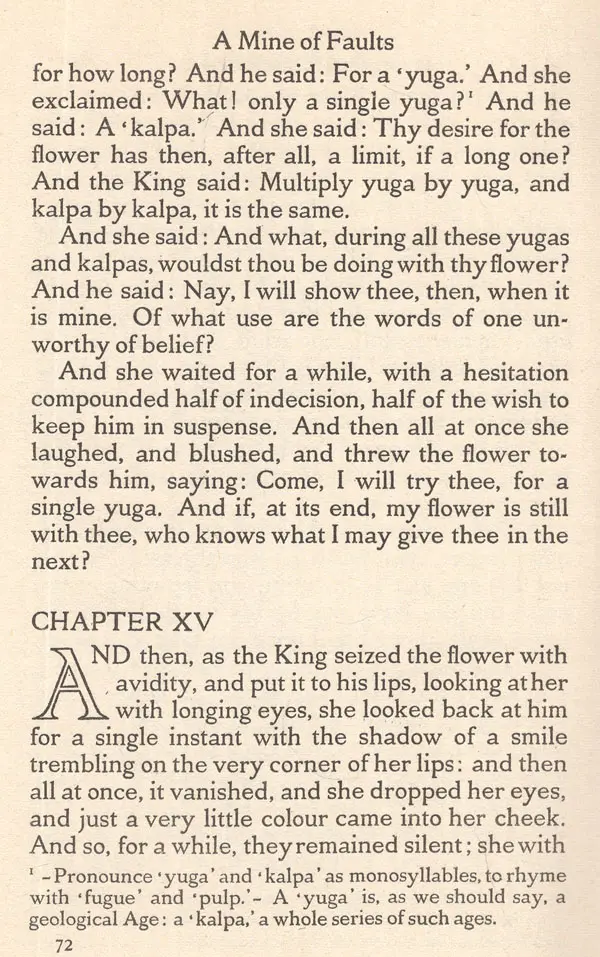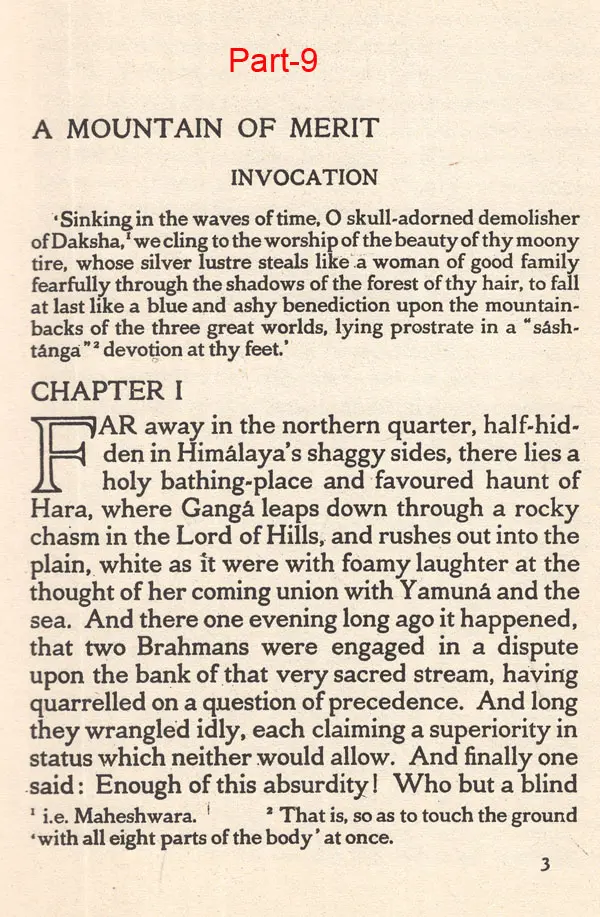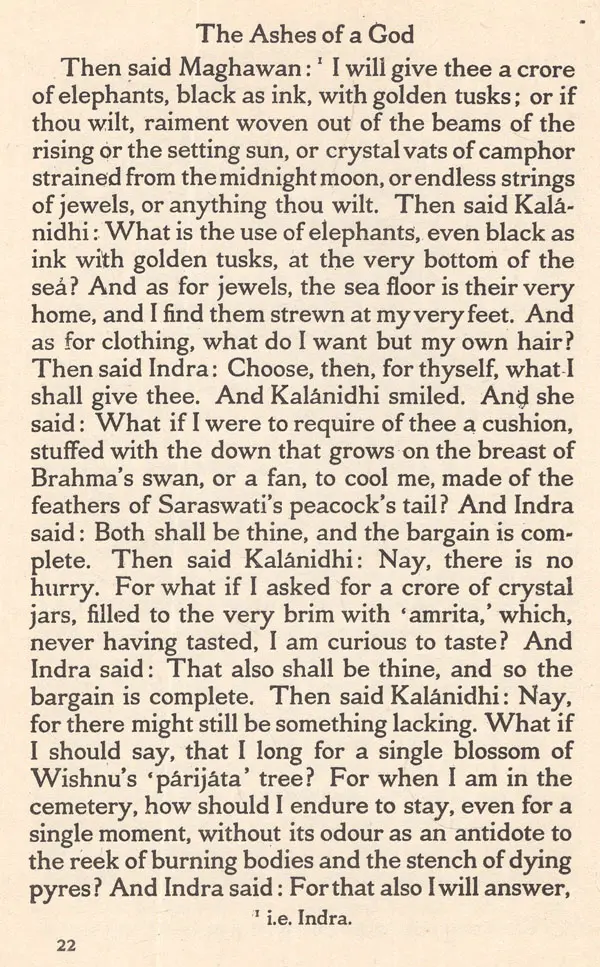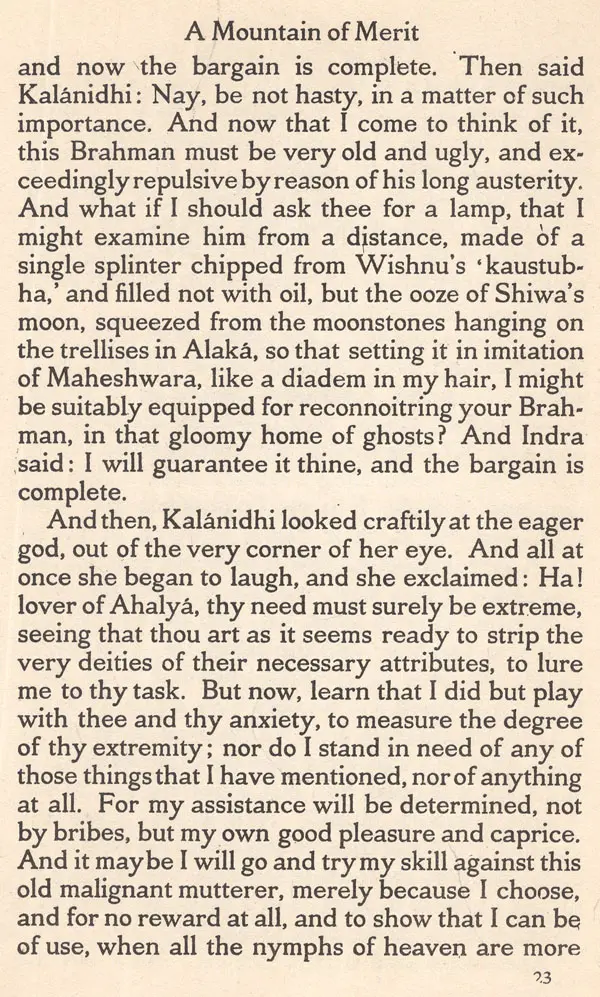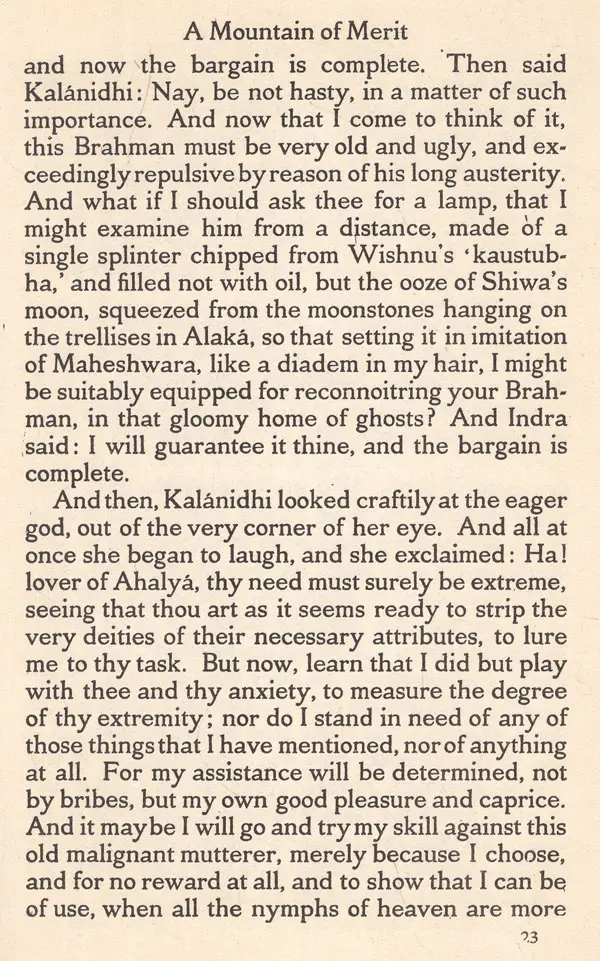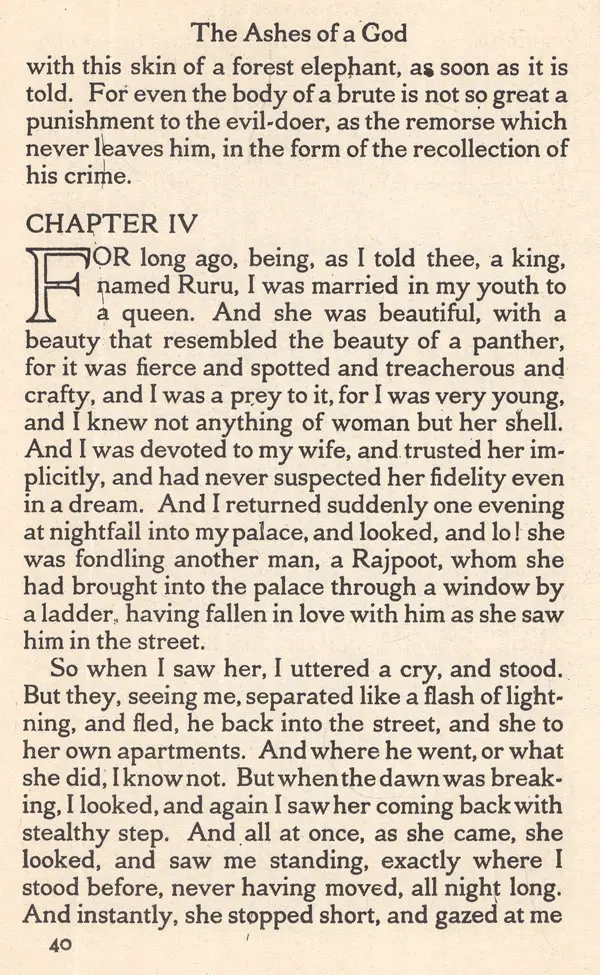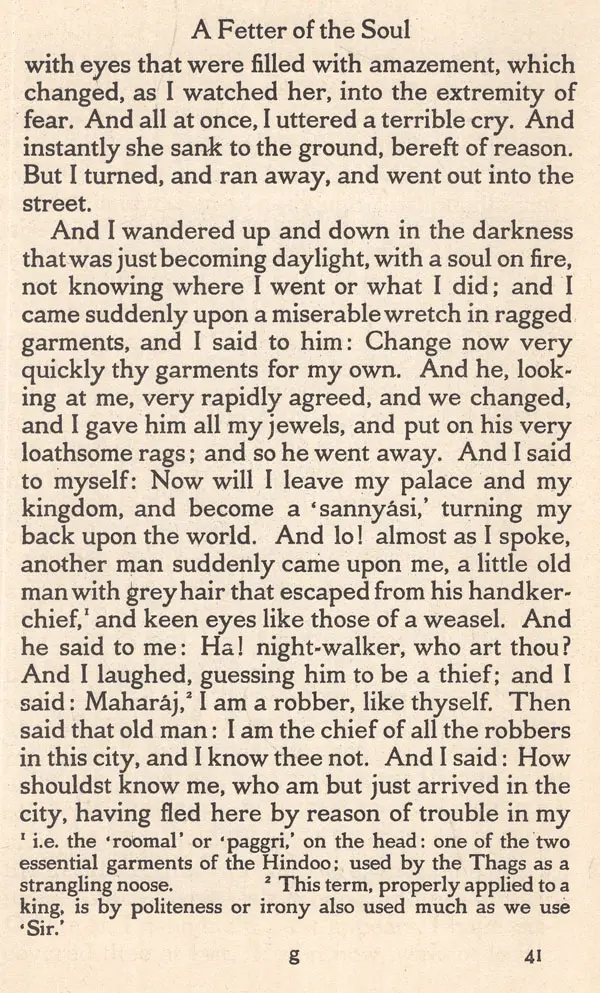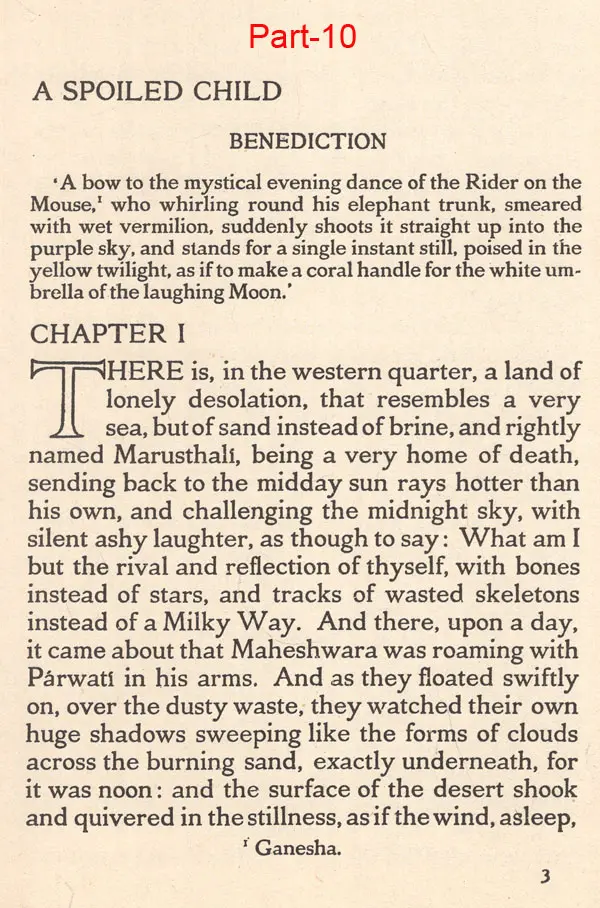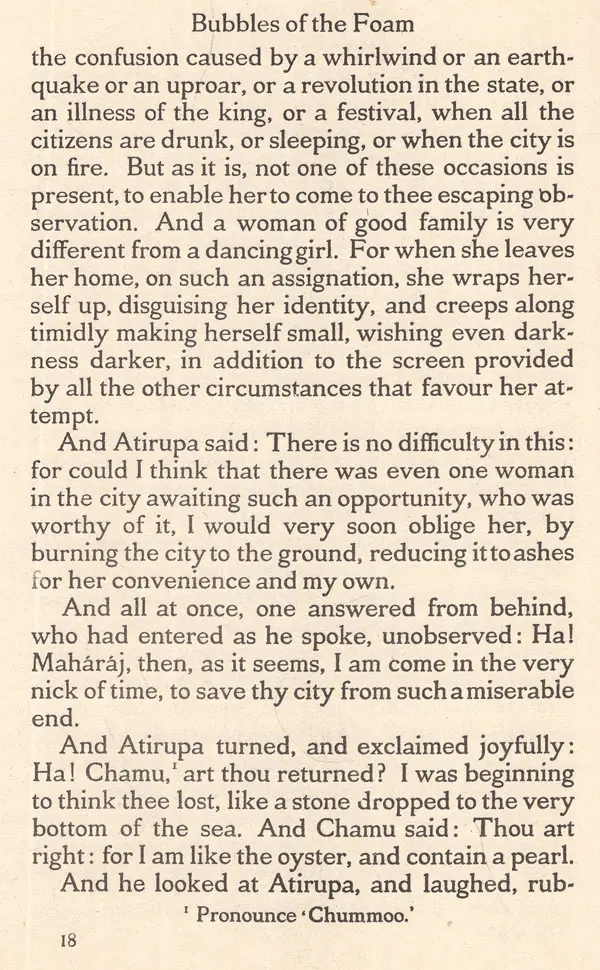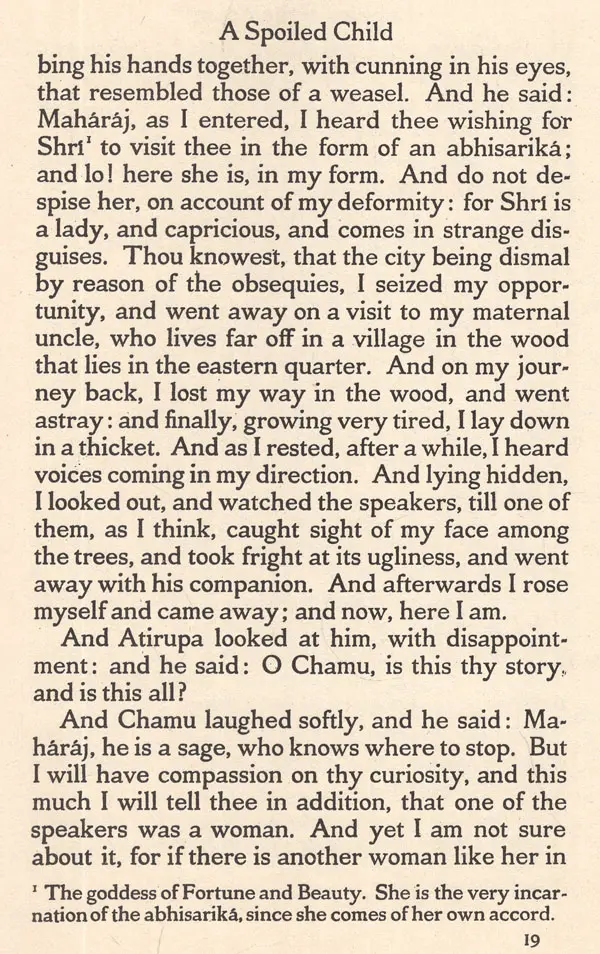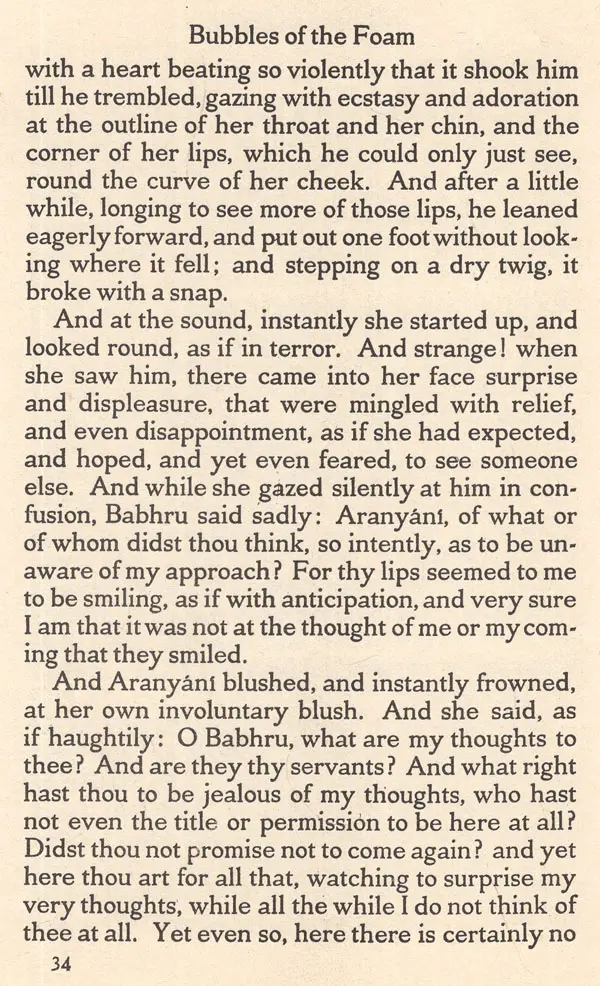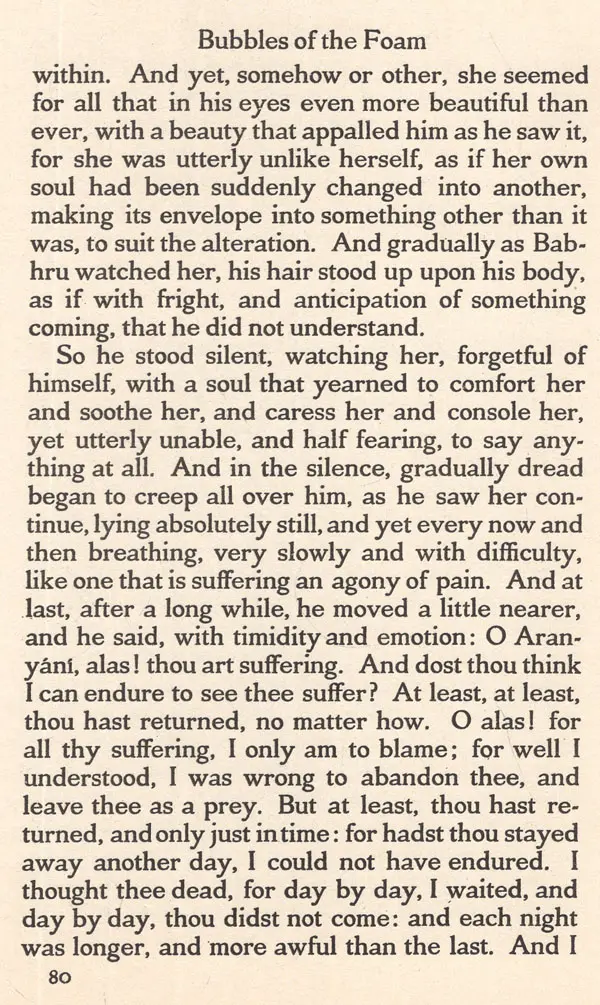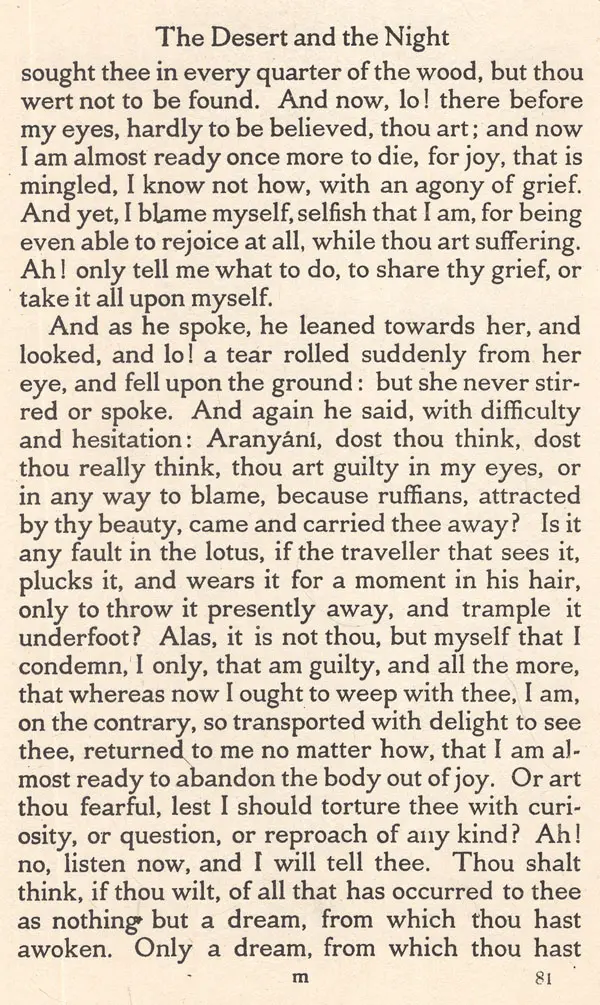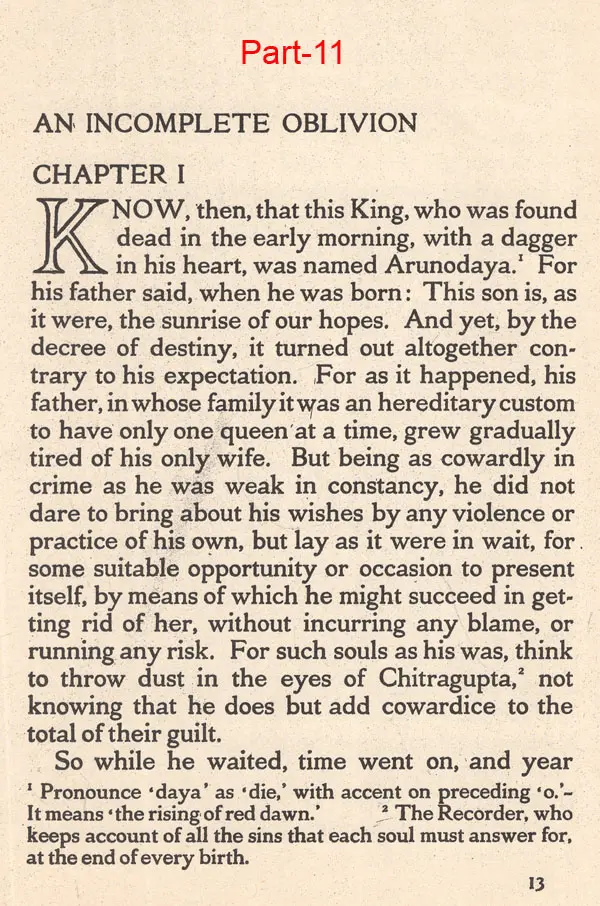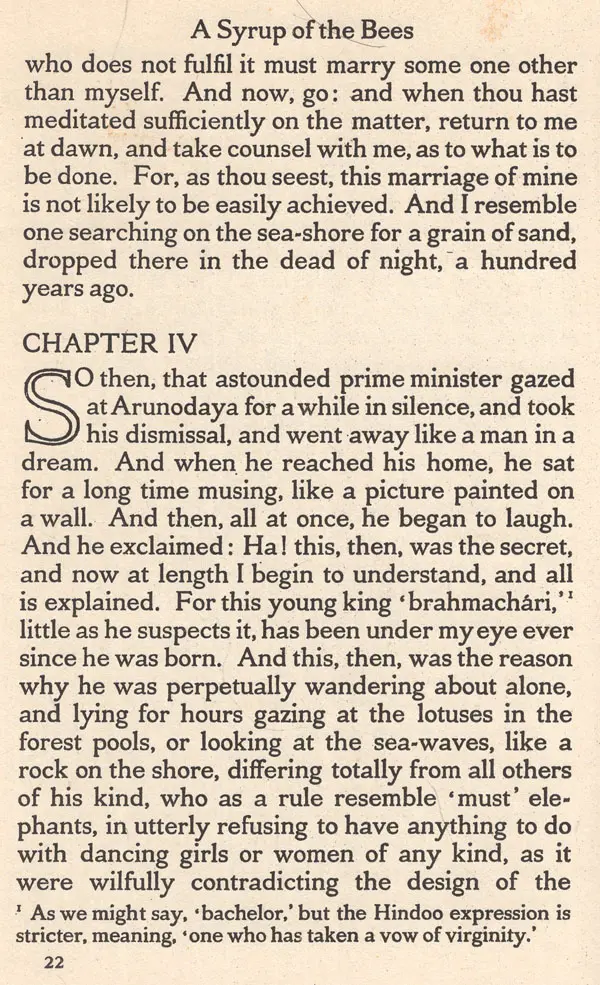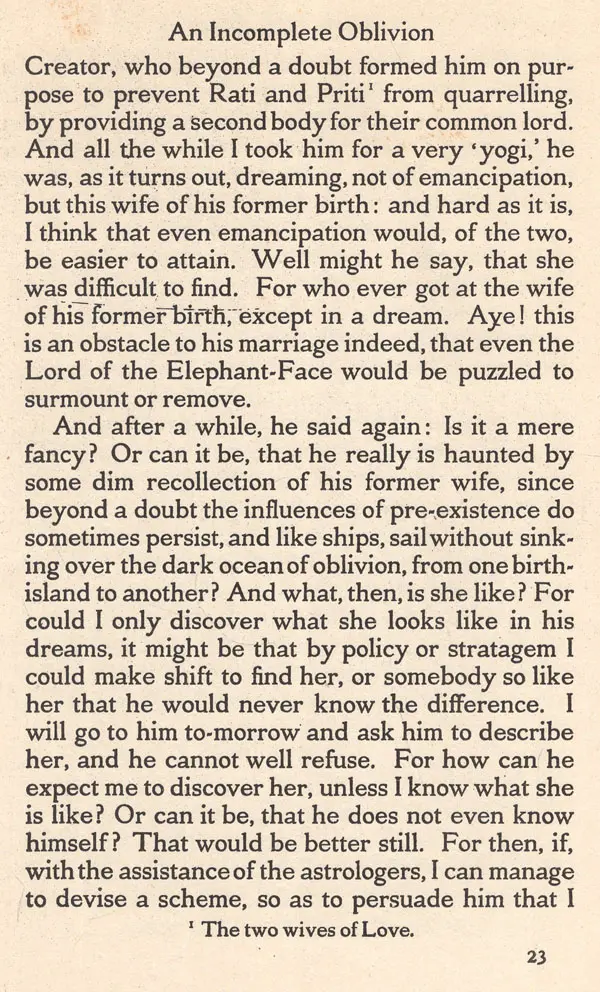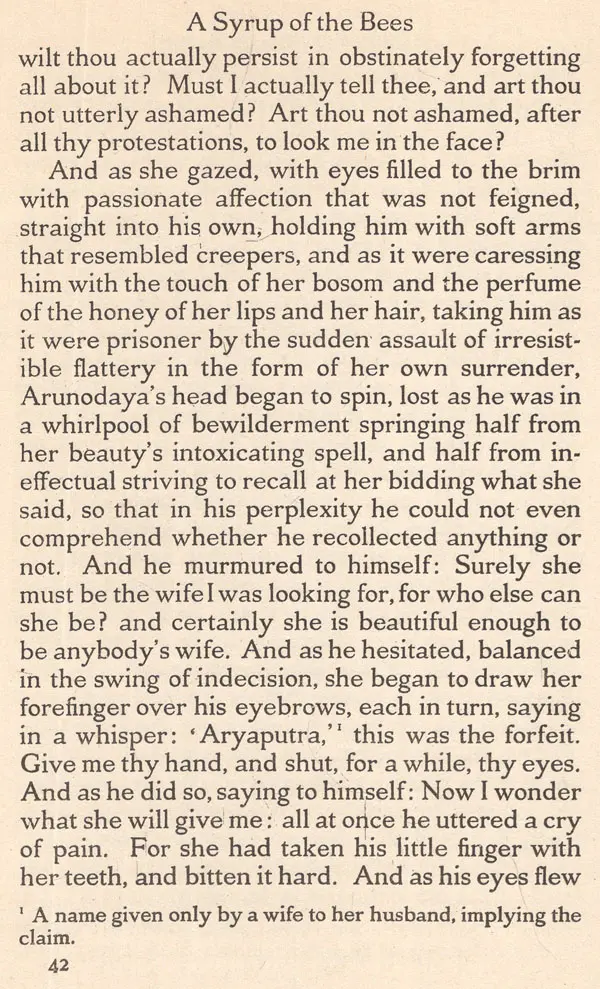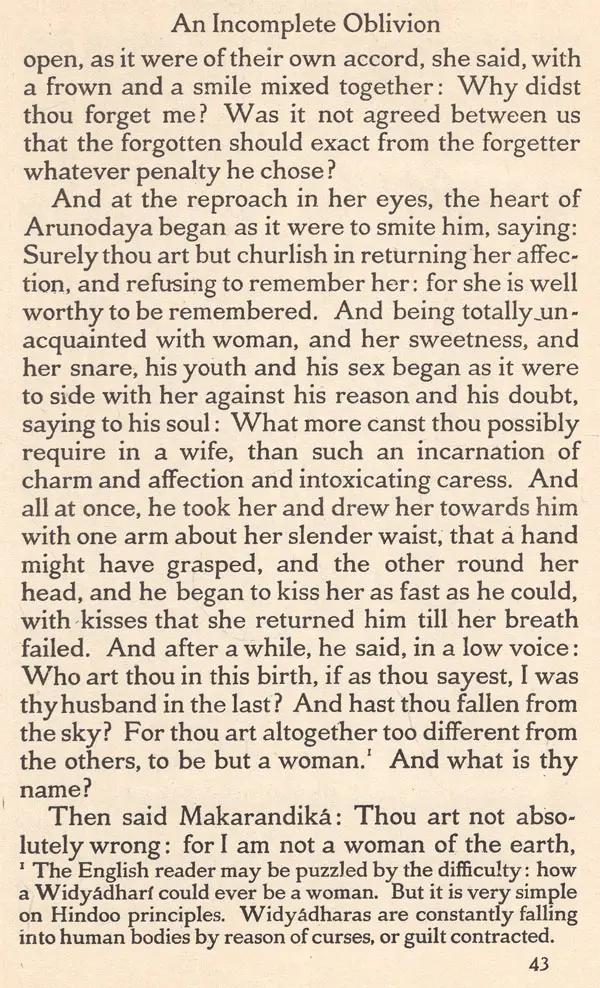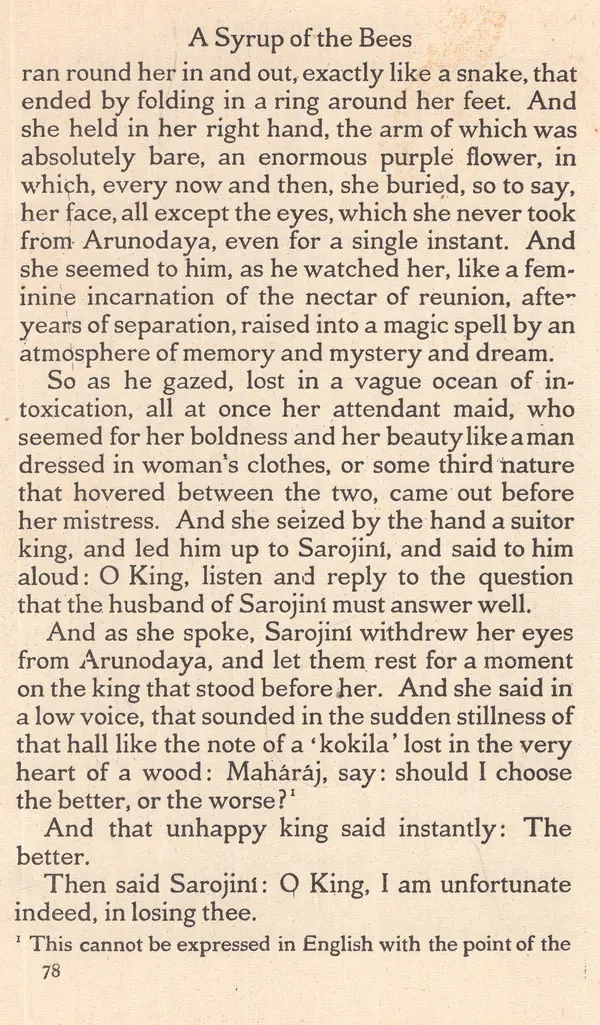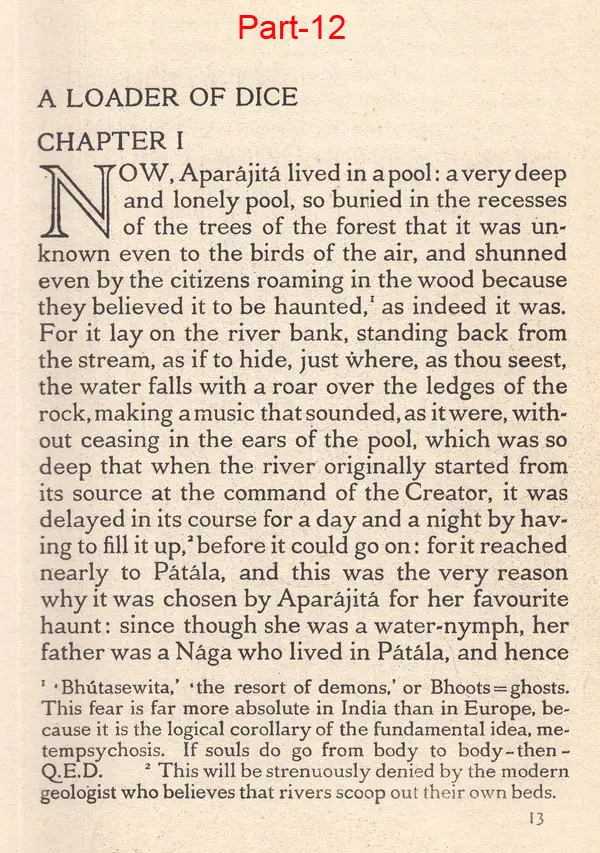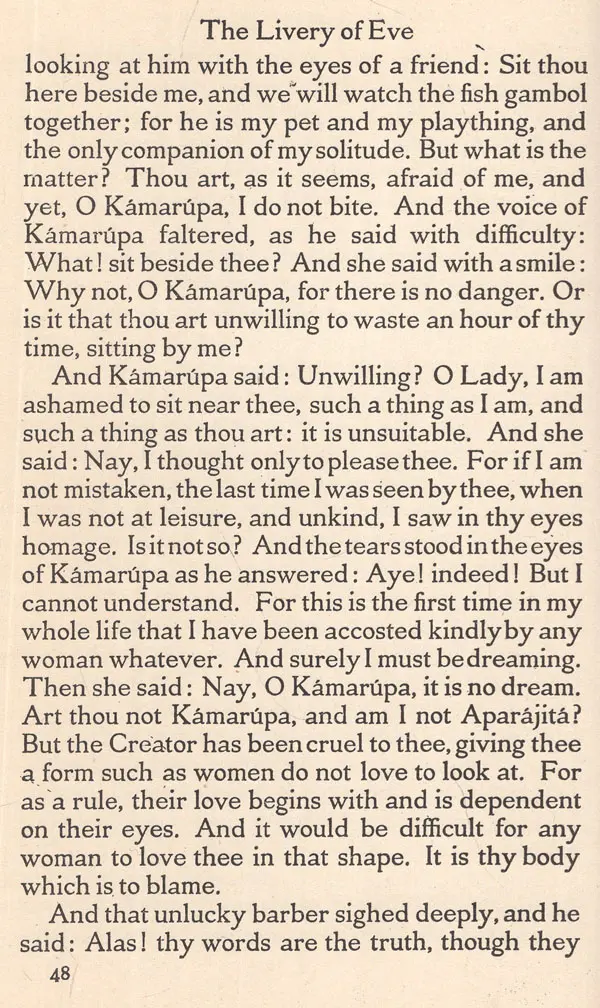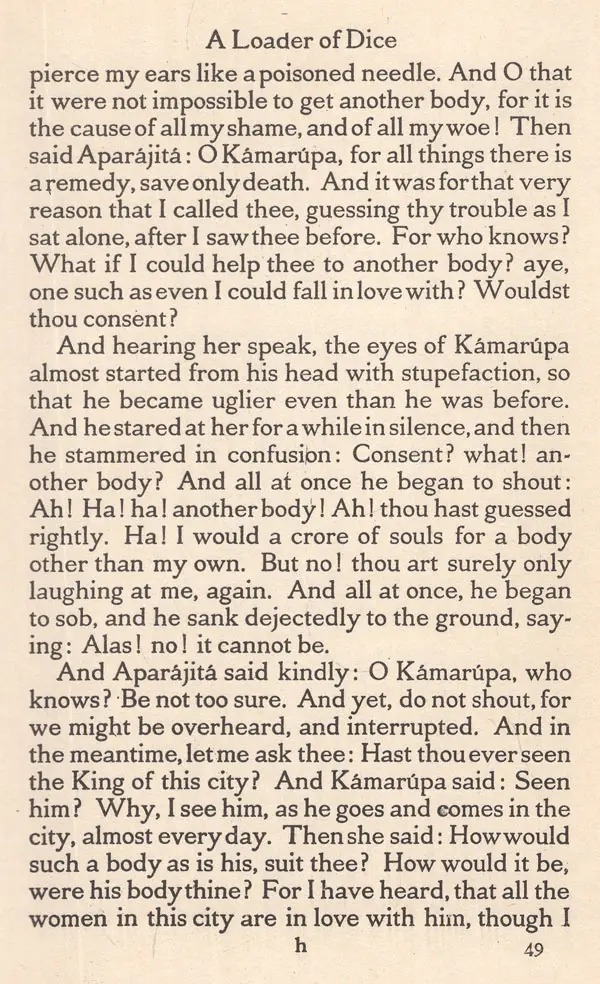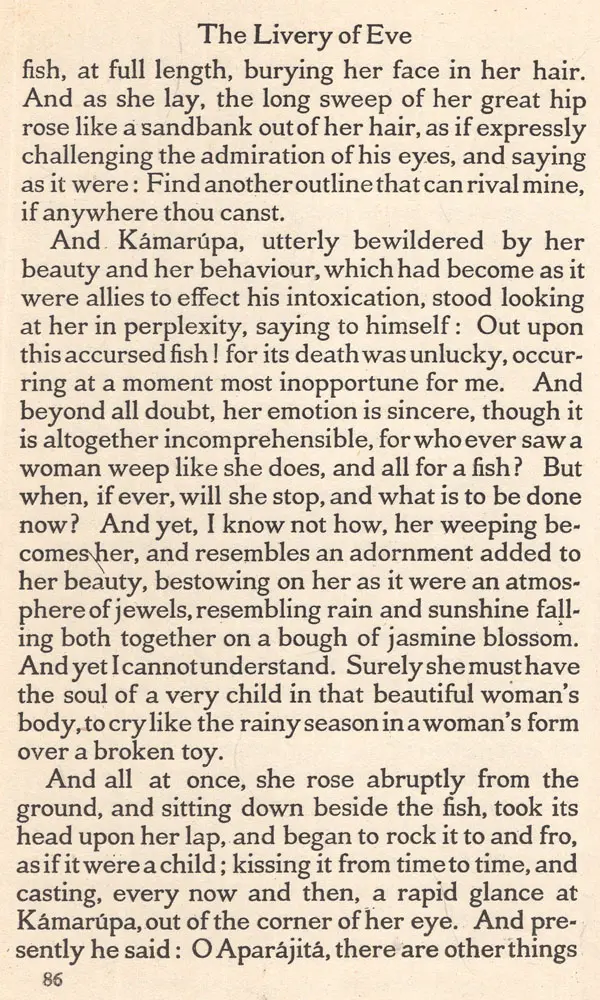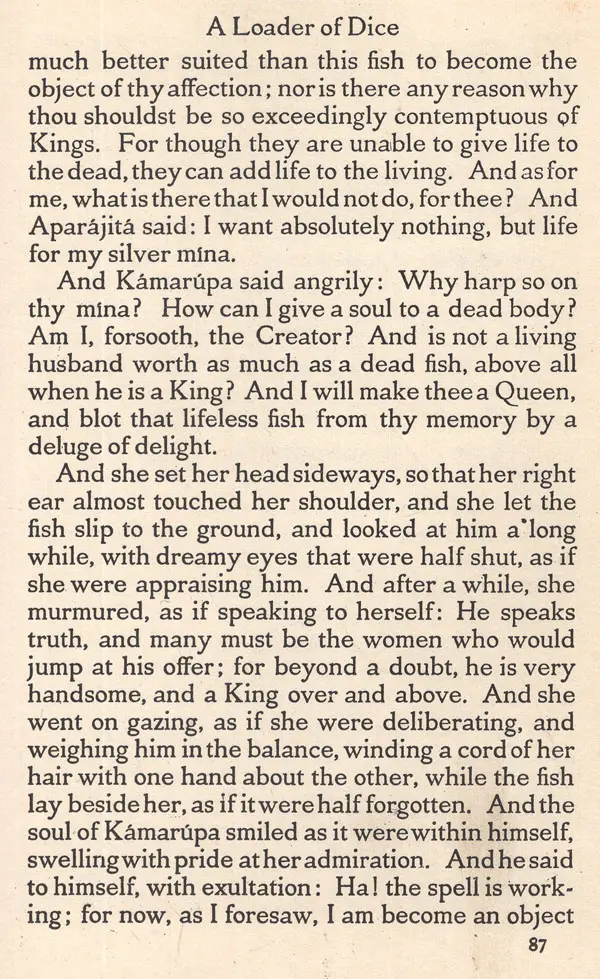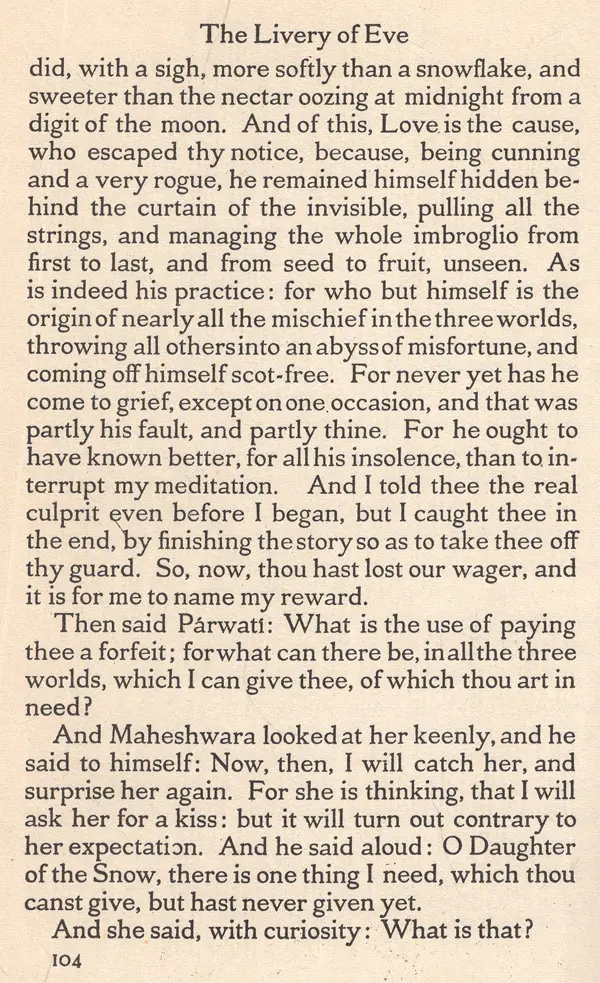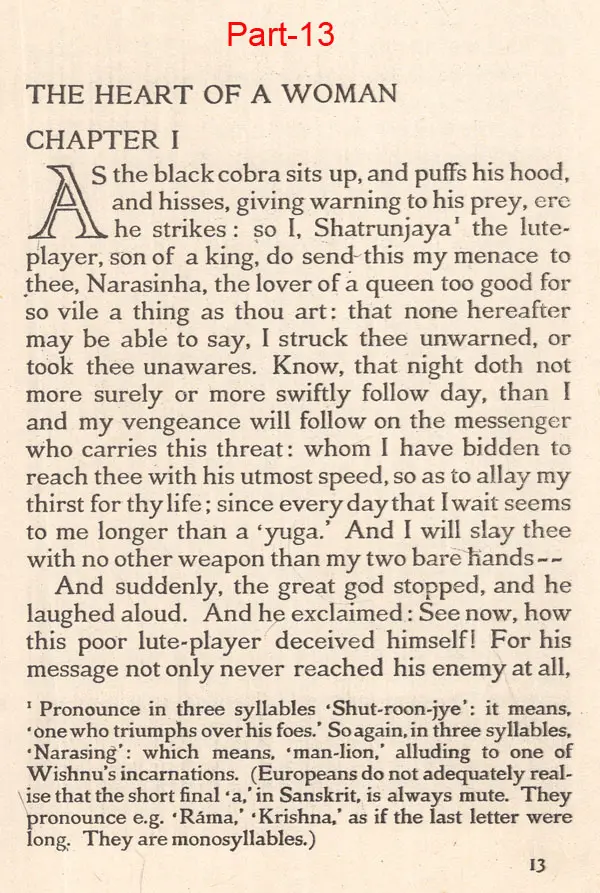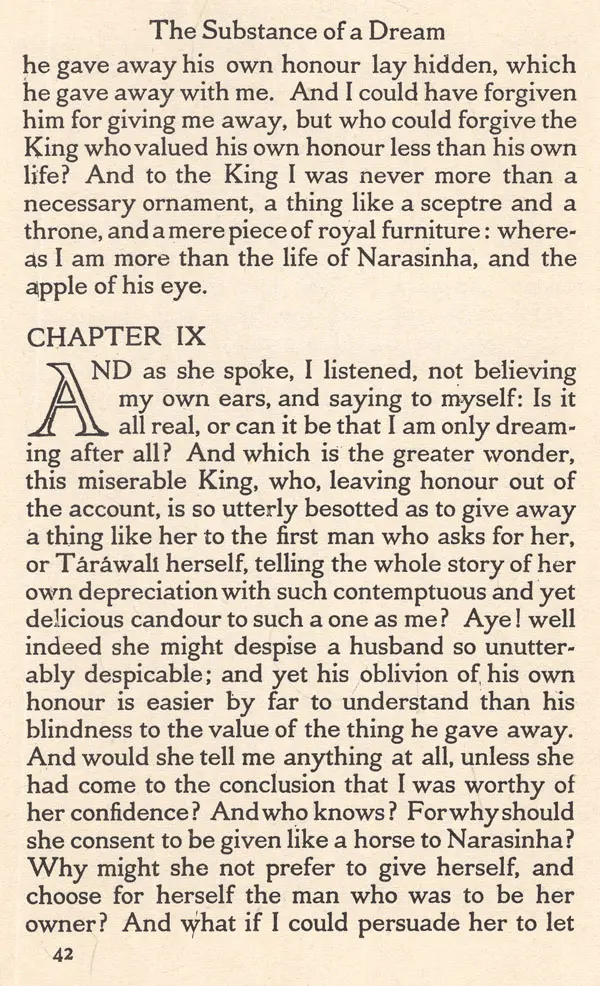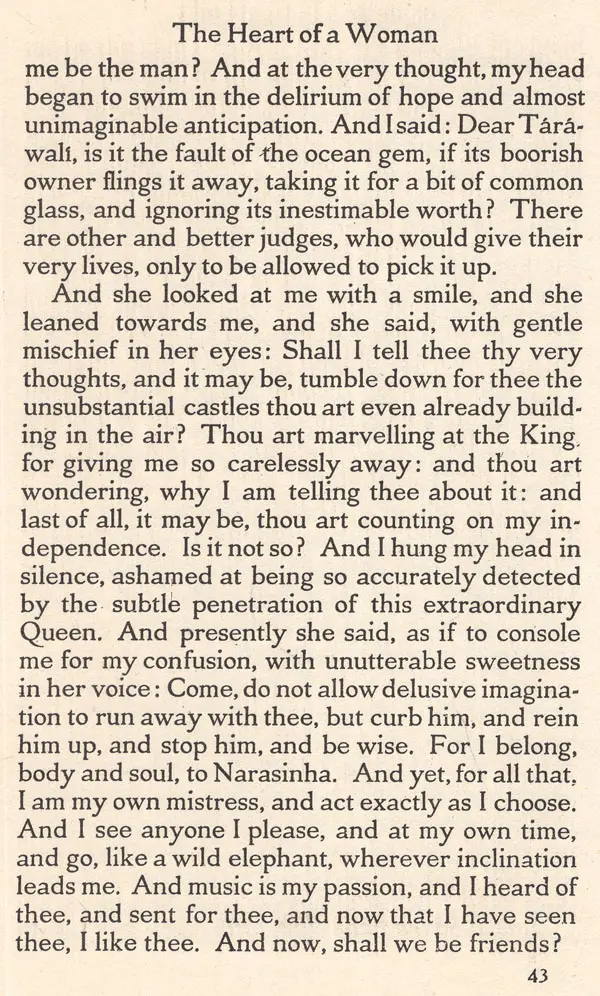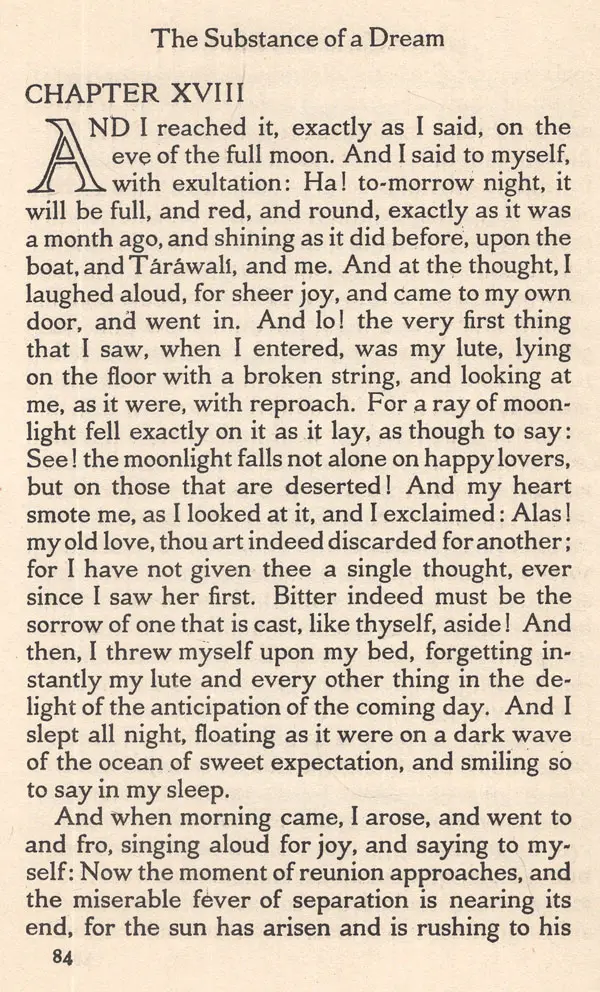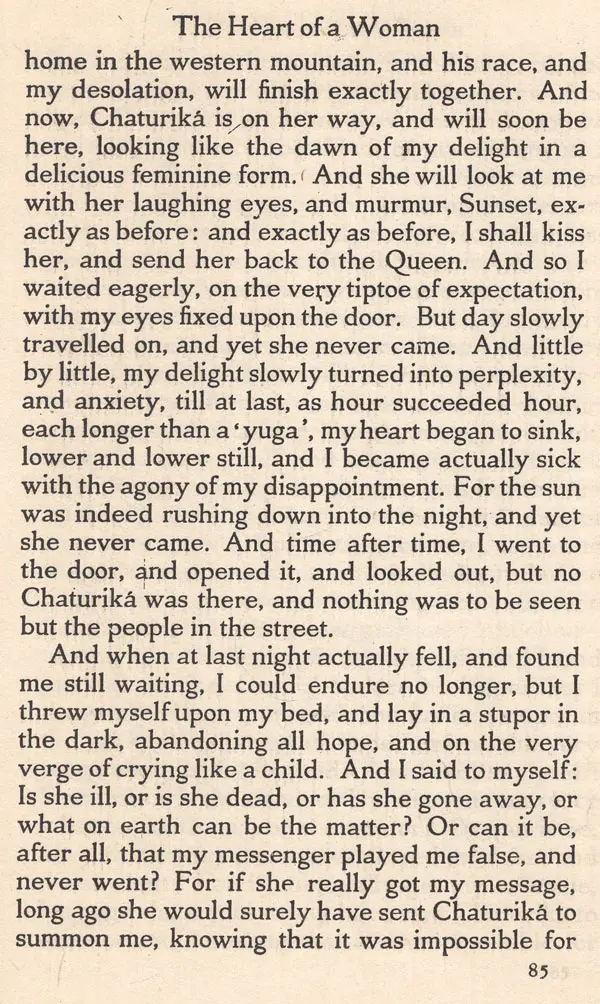
Indian Classics (Set of 13 Volumes) (An Old and Rare Book)
Book Specification
| Item Code: | UAO372 |
| Author: | F.W Bain |
| Publisher: | Swati Publications, Delhi |
| Language: | English |
| Edition: | 1993 |
| Pages: | 1402 |
| Cover: | HARDCOVER |
| Other Details | 9.00 X 6.00 inch |
| Weight | 4.20 kg |
Book Description
Ancient Indian Classics have been a subject of great attraction to one and all in the world. The collection of interesting mythical tales brought back to mind the traditional events occurring in ancient India. The original collection was all in Sanskrit and hence not easily intelligible to many scholars who were ignorant of the language. F.W. Bain, therefore, rendered a great service to the scholarly world by translating the entire collection into simple English. The text in original was divided into thirteen volumes, which should have referred broadly to the same number of events. The author, however, observed the variation and took special care in preparing a table for the convenience of English readers wherein he furnished the subject matter of individual stories narrated in the original text. He has done so in the contents itself, so as to enable the interested reader to pick up for study only that lore to which he is attracted. The Sanskrit text is devoid of the table.
A study of the Indian Classics is considered as essential in order to be conversant with the cultural traditions of the country. The stories cannot be taken as facts of history, but at the same time they should not be treated as complete fiction rejecting outrightly the Kernel of truth which they contain. There cannot be watertight compartment between mythical tales and approach to history. The hoary past cannot be said to possess any recorded history but in the reconstruction of history, if at all the same is to be attempted, the ancient classics cannot be ignored, particularly so in India. The wide expanse of the country has innumerable tales, besides the many-sided variety having the impress of each and every corner. Unity in diversity of the country is reflected not only in the present picture but is very much manifested in the ancient Indian Classics. Various subjects of different volumes treated in the set presented here are (1) Digit of the Moon (Churning of the Ocean, (2) The glory of the Going Down of the Sun (Three Steps of the Sun), (3) Political Alliance, (4) Dedicated to Husbands and Wives, (5) Desiderio (Death - a dissolving view), (6) Dedicated to the other Sex (Story of the demon Rahu), (7) Dedicated to S.O.B. (An Incarnation of the Snow), (8) Panchatantra (Politics Illustrated), (9) Dedicated to One that is taken and Two that are left (The Ashes of a God-The beautiful lament of Rati), (10) Dedicated to Lady Glenconner (Bubbles of the Foam), (11) To Mrs Theodore Beck (A Syrup of the Bees), (12) Dedicated to Mrs. Maxwell More (The Livery of Eve), (13) Dedicated to the Inexpressibly Gentle Genius of My Own Mother (The Substance of a Dream).
The importance of the ancient Indian Classics, particularly the simple. translation of the original Sanskrit text into English by F.W. Bain must have been realised by the above mentioned brief note.
A DIGIT OF THE MOON is the sixteenth part of a much longer work, entitled The Churning of the Ocean of Time." A well known Hindoo legend recounts how the gods and anti-gods assembled to churn the ocean of milk. for the nectar of immortality. After throwing in herbs of various kinds, they churned it with Mount Mandara, and obtained the nectar, with certain other things, one of which was the Moon, who by the way is often called 'the Lord of Herbs."
But in Sanskrit, the Moon, like the Sun, is a male. Hindoo poets get over this difficulty, when they want a female Moon, by personifying his at tributes, or making a part do duty for the whole. Thus, his disc is divided into sixteen parts, called 'streaks' or 'digits,' and a beautiful woman is a digit of the moon."
The whole work, then, called The Churning of the Ocean of Time, 'is, like the Moon, divided into sixteen parts, each named after one of the digits of the Moon. The one now before the reader is called A Digit of the Moon, turned red by the rays of the dawning Sun." The point lies in the play on the word 'red, which in the original also means 'enam oured,' 'in love.' That is to say, that the heroine of the story 'turns red,' i.e. falls in love with the hero, whose name, it will be found, is Súryakánta, or 'Sunstone."
I little thought, ten years ago, that it would ever be my lot to play, as it were, the part of Boccaccio, and bring forth meat from the eater, stories from a plague. Yet here also the unexpected came about, in the following way.
Considering how recently Europe has become aware of the very existence of a Sanskrit litera ture, I had often wondered whether there might not be hidden away, here and there, in the vast ocean of India, literary treasures still undiscov ered, which future 'churning' might bring up. But I did not expect that my question would ever re ceive a practical answer. However, a few years ago, when the plague was decimating the city of Poona, carrying off its victims by hundreds a day. personal acquaintance with some of the officers ap pointed by Government to cope with the enemy put it into my power to do a slight service to an old Maratha Brahman, whose name, by his own par ticular desire, I suppress. My 'service' was indeed a mere trifle, a thing of which no Englishman would have thought twice. Hindoos, however, look on these matters with very different eyes. An Englishman's house may be his castle, but a Hin doo's house is a shrine, a holy of holies, which for unhallowed footsteps to invade is desecration. I was amused to find that my old Brahman regarded me almost as though I had preserved his family from nameless and everlasting infamy. And when he subsequently discovered that I was a humble student of the 'polished, sacred' language, and could make shift to admire his beloved Kálidas in the original, his esteem for me rose to a degree al most embarrassing. He came two or three times to see me, and took an obvious pleasure in dilating on the beauties of his ancient authors to one who was at least a good listener. But it struck me as curi ous, that every time he went away he seemed as it were labouring to deliver himself of some import ant communication, which nevertheless he shrank from discovering to me; and he always eventually departed, with an air of some confusion, and his secret left untold. I thought at the time that he was only nerving himself to make some request of me, of whichhe doubted the reception, and was unable to screw his courage to the sticking-point. But I was mistaken.
Book's Contents and Sample Pages

